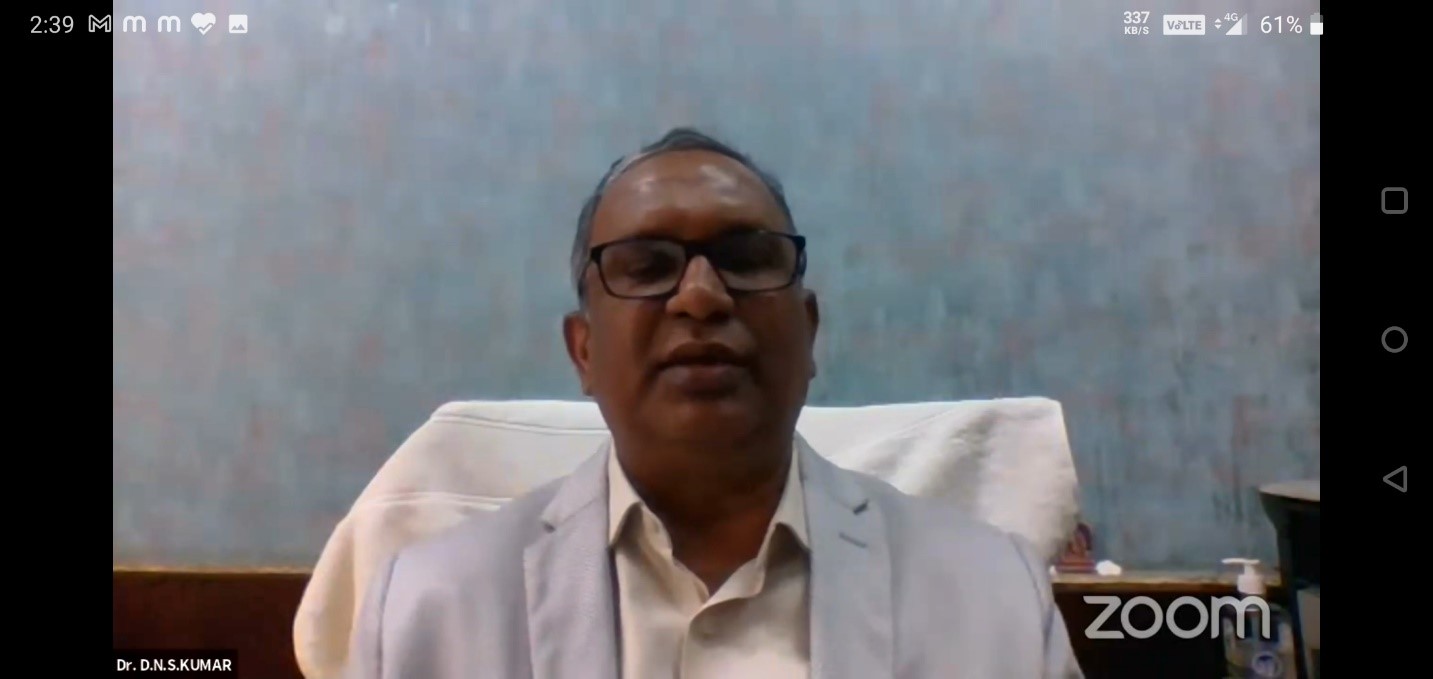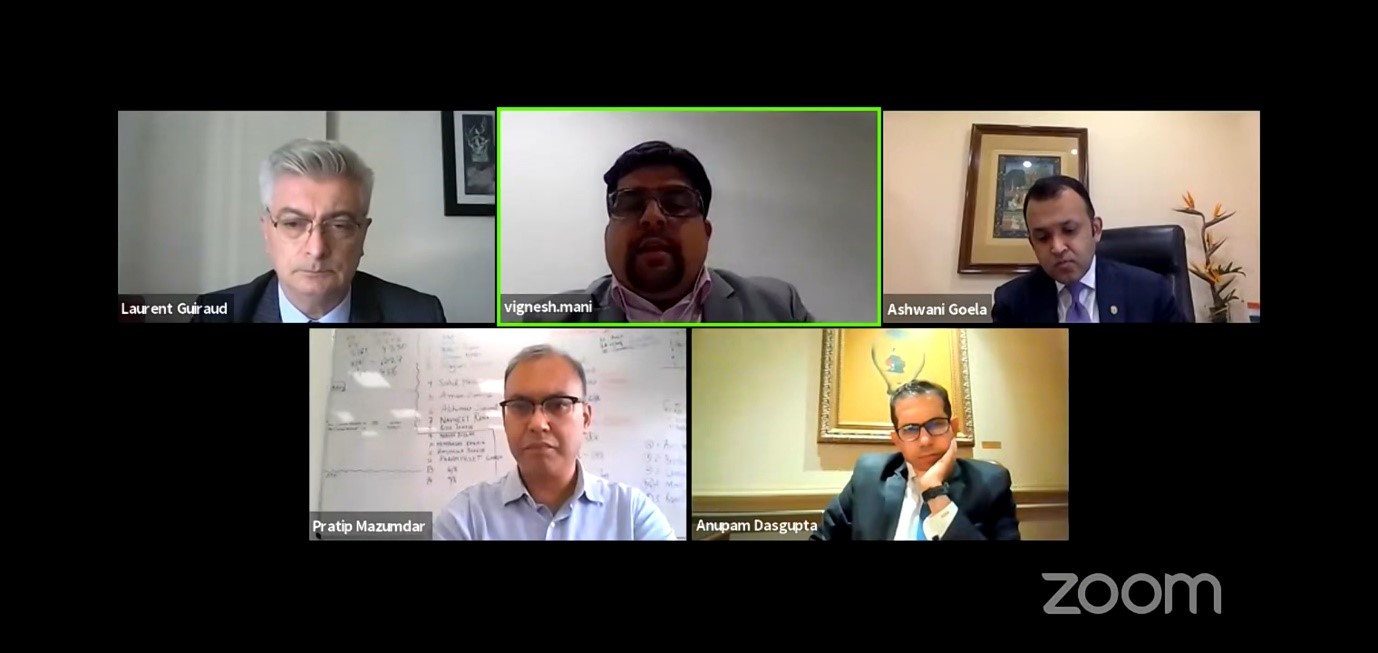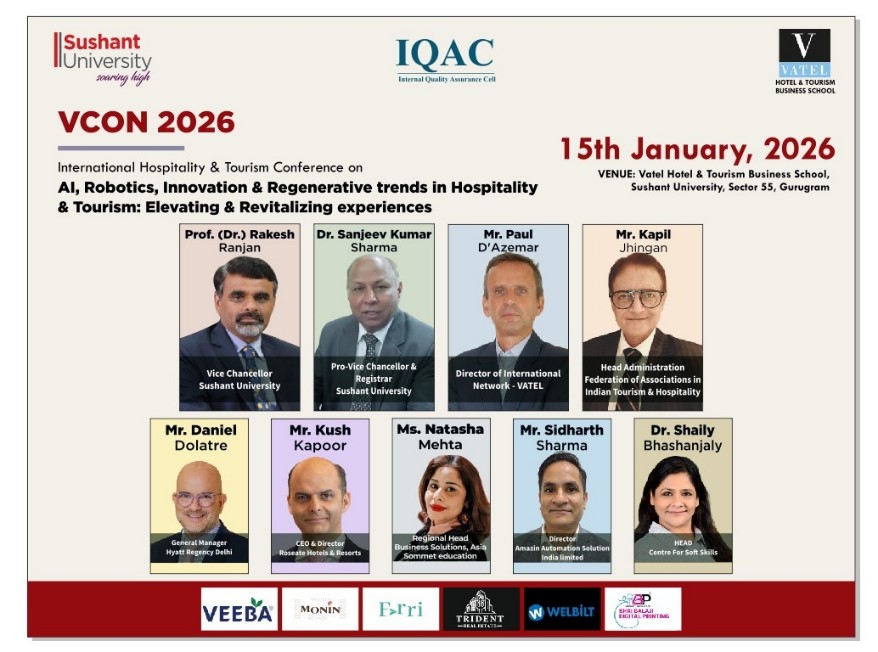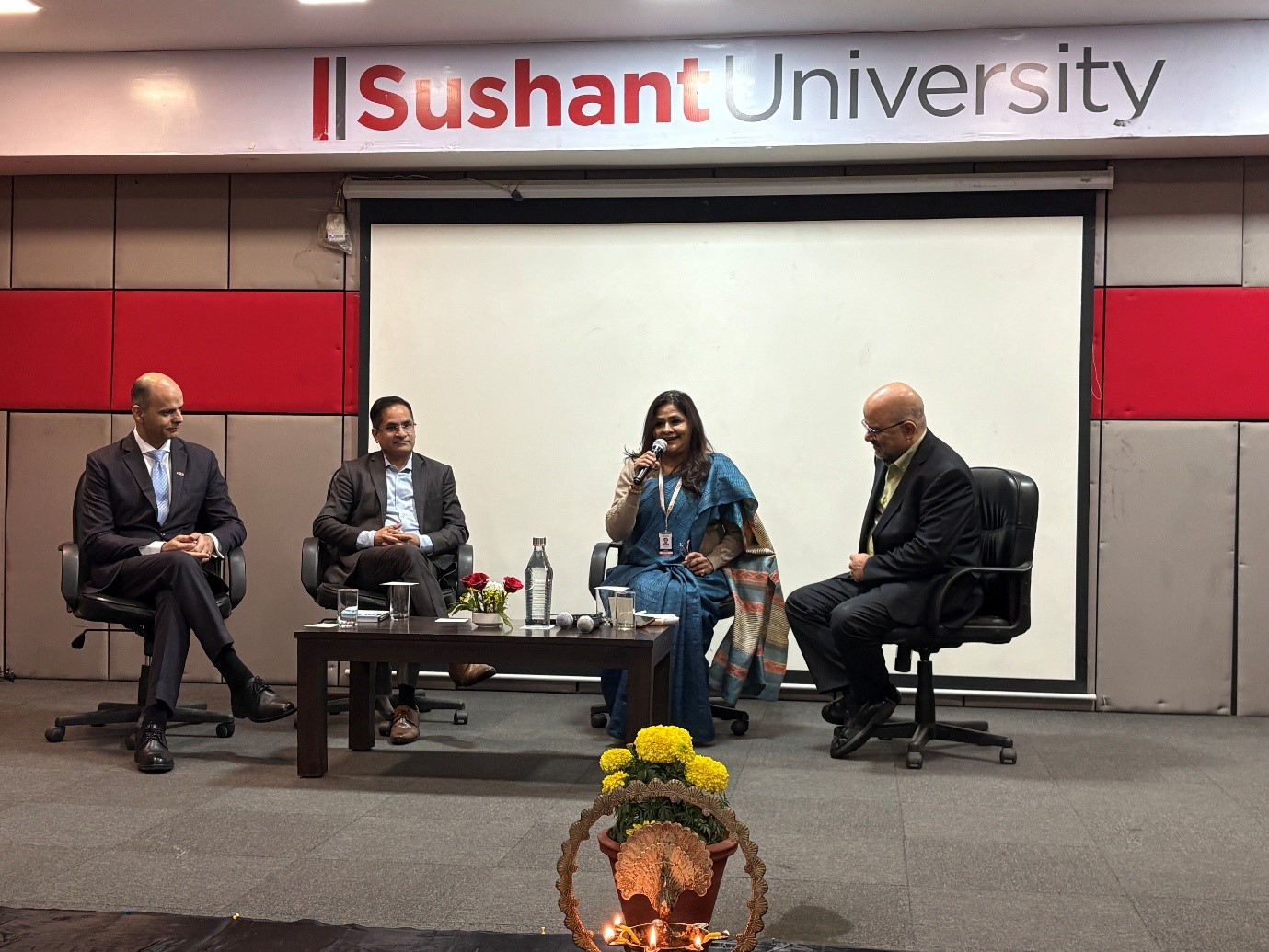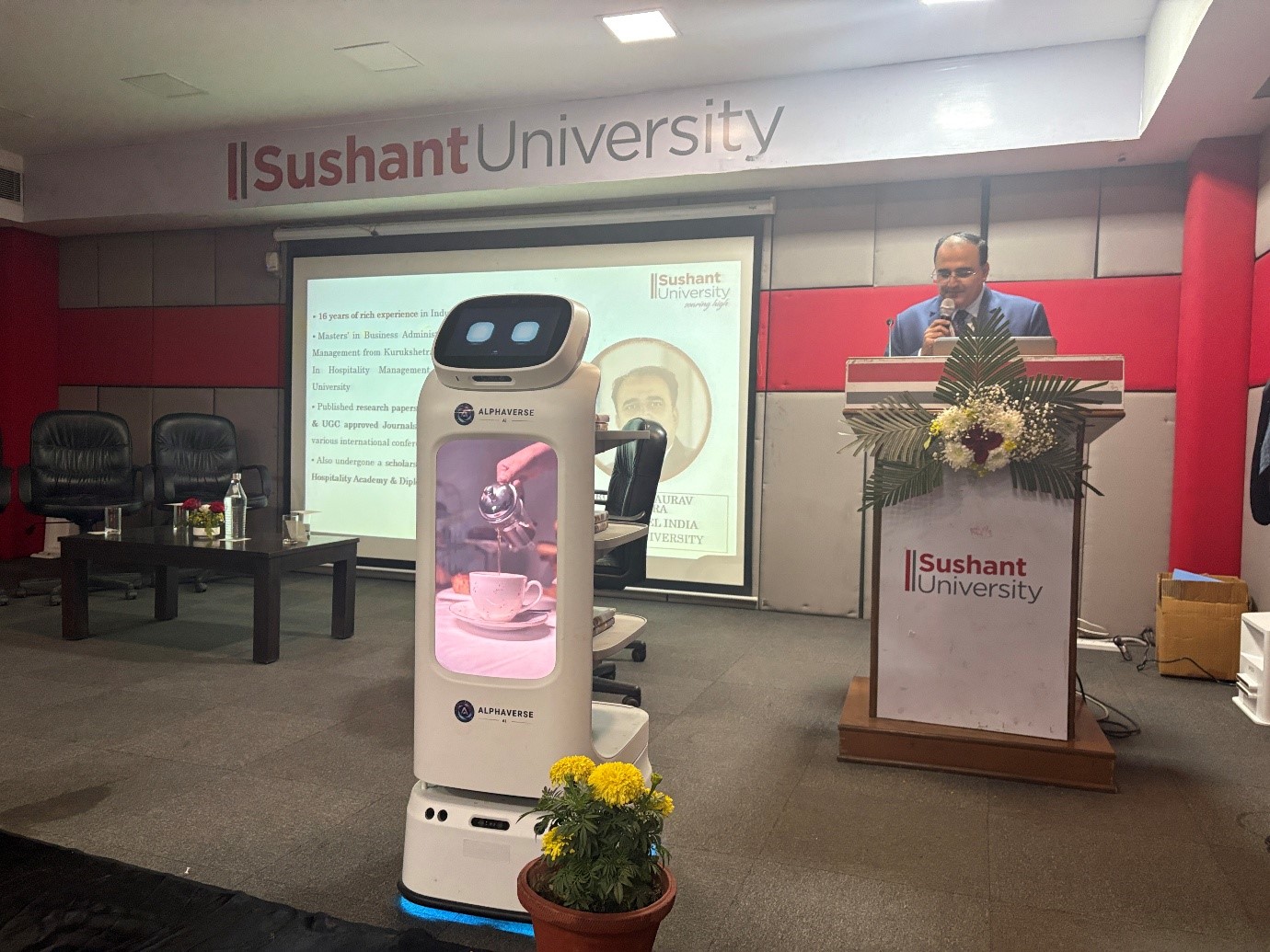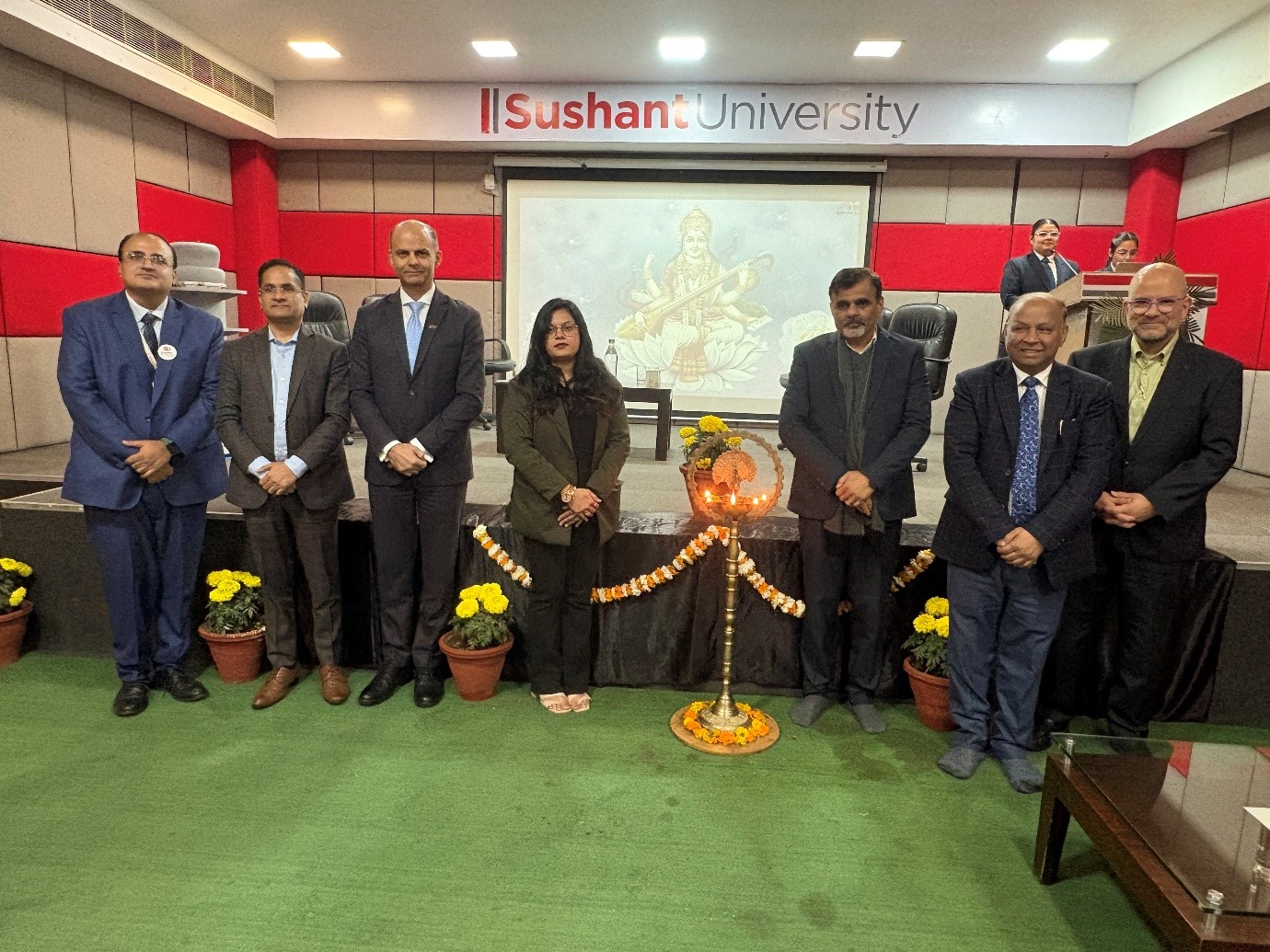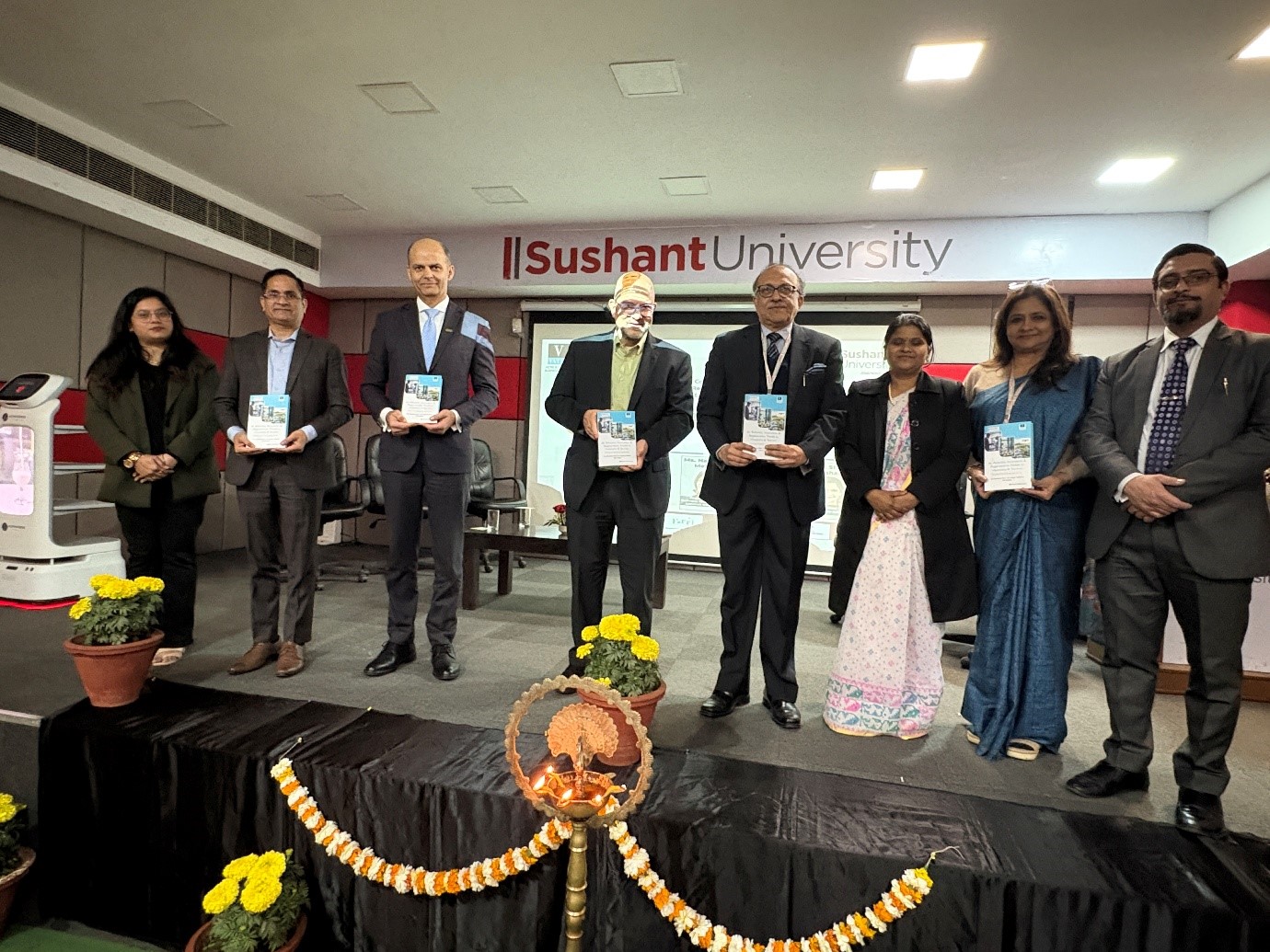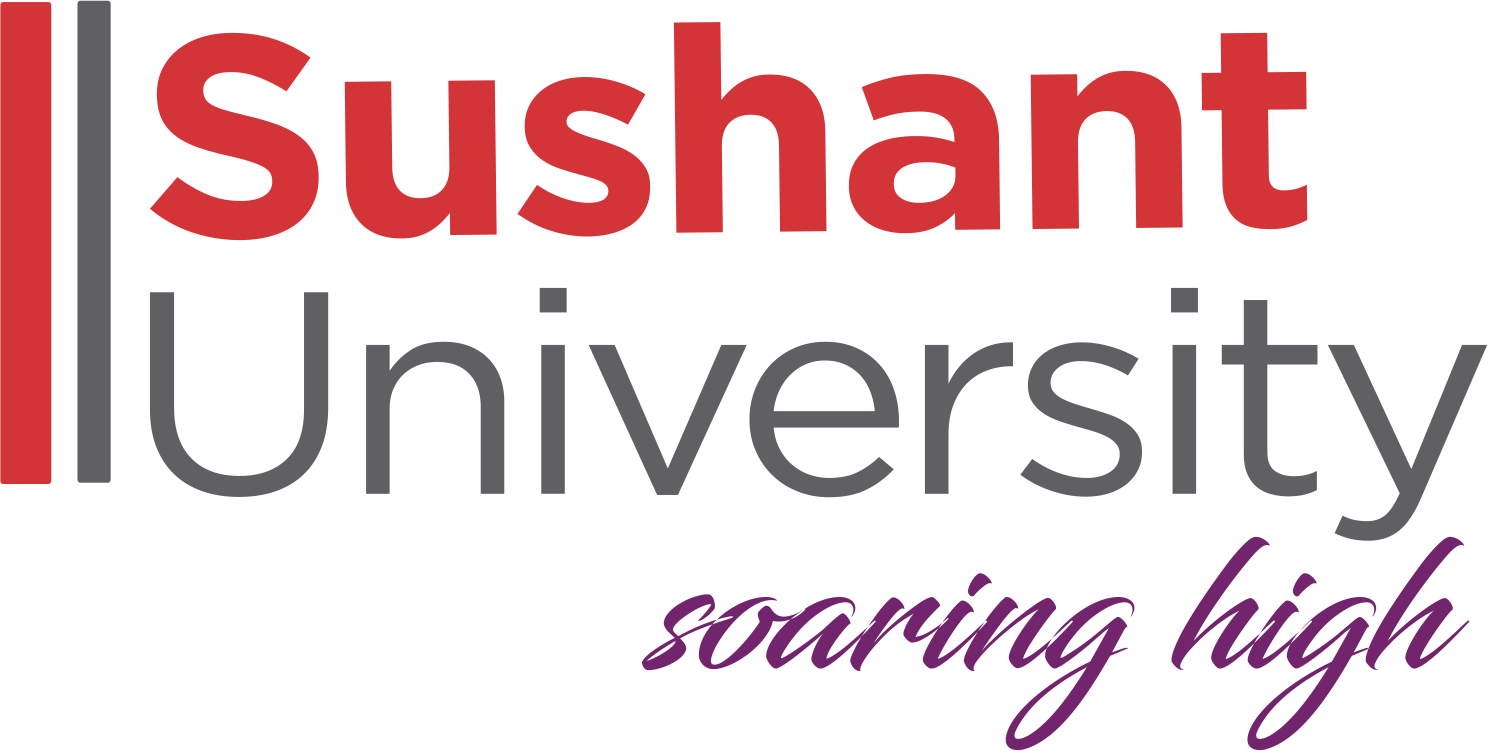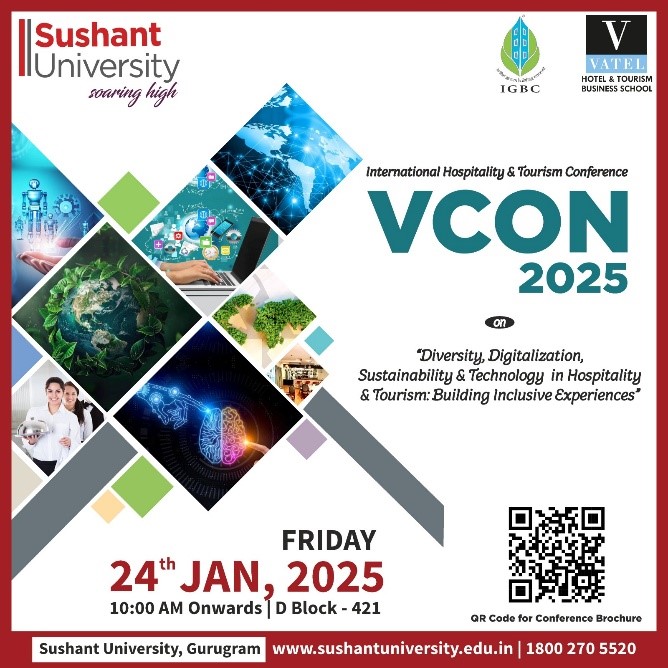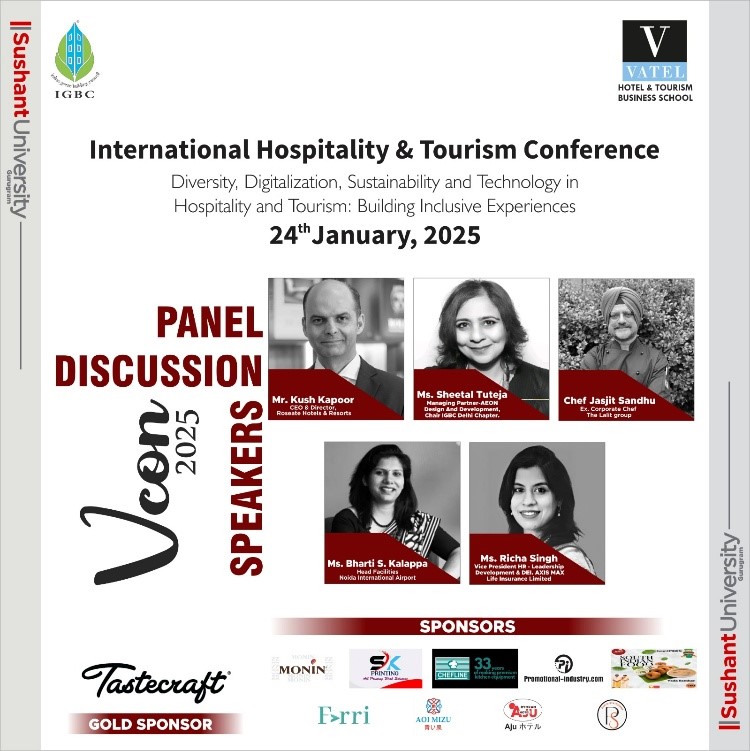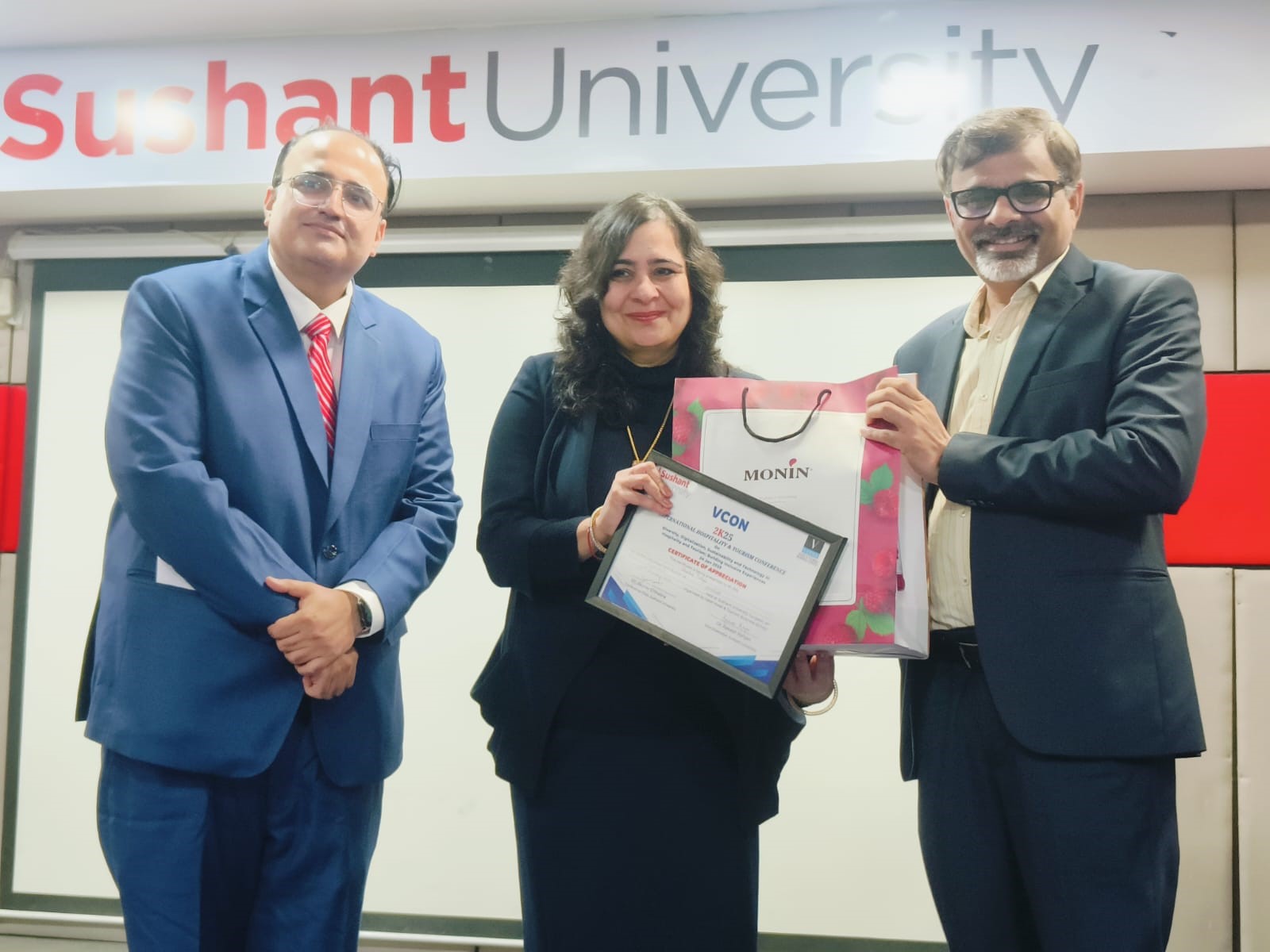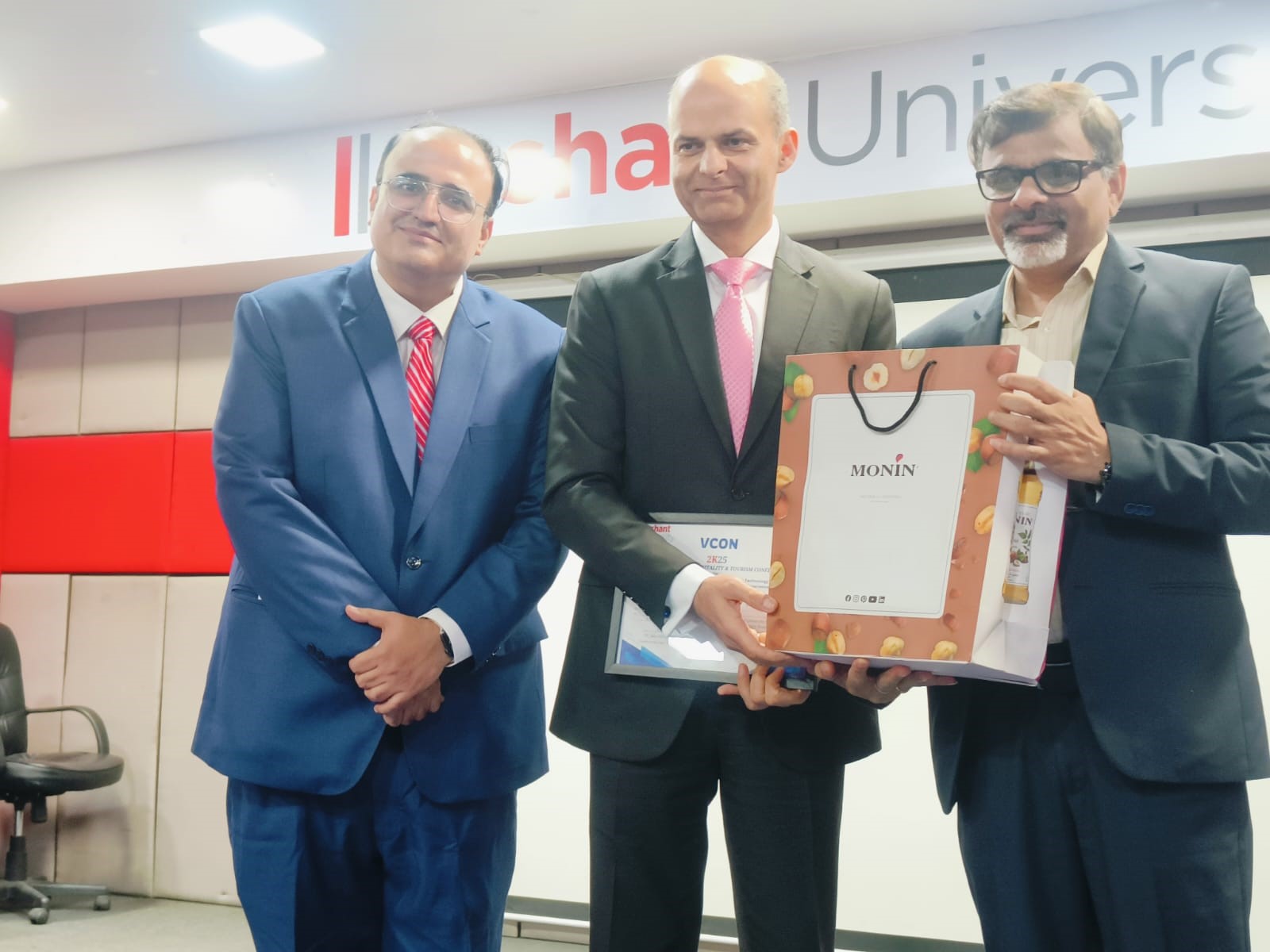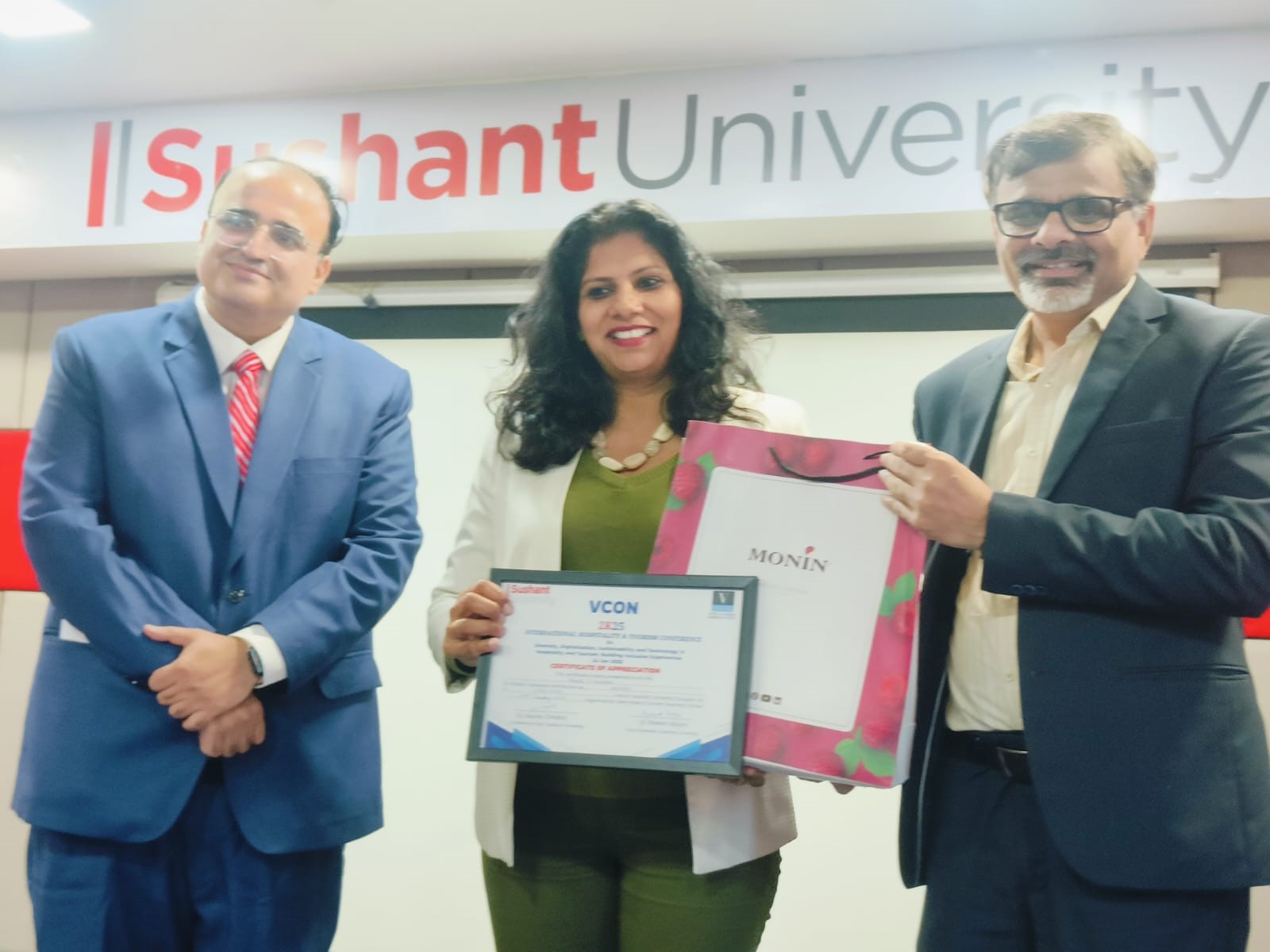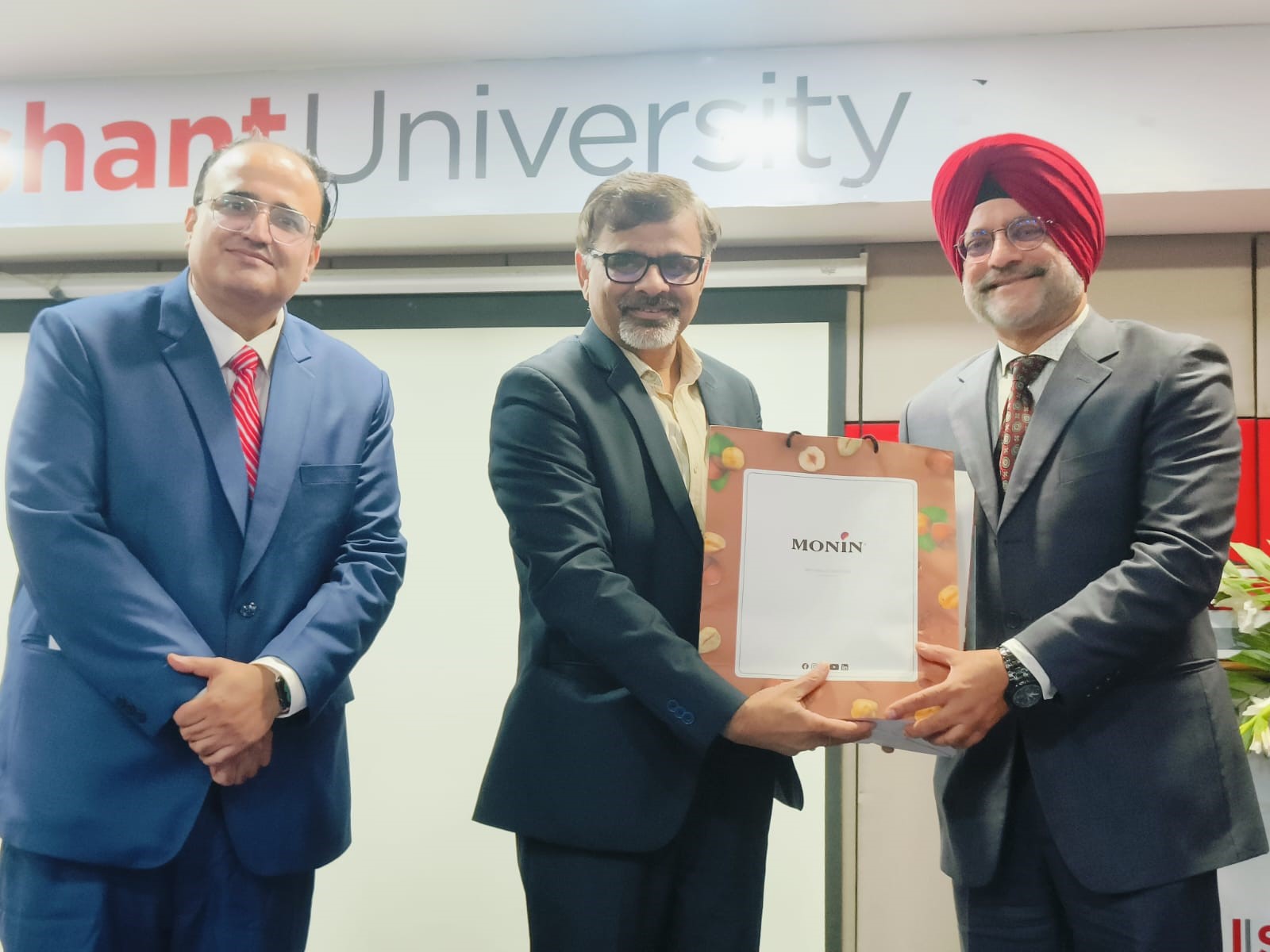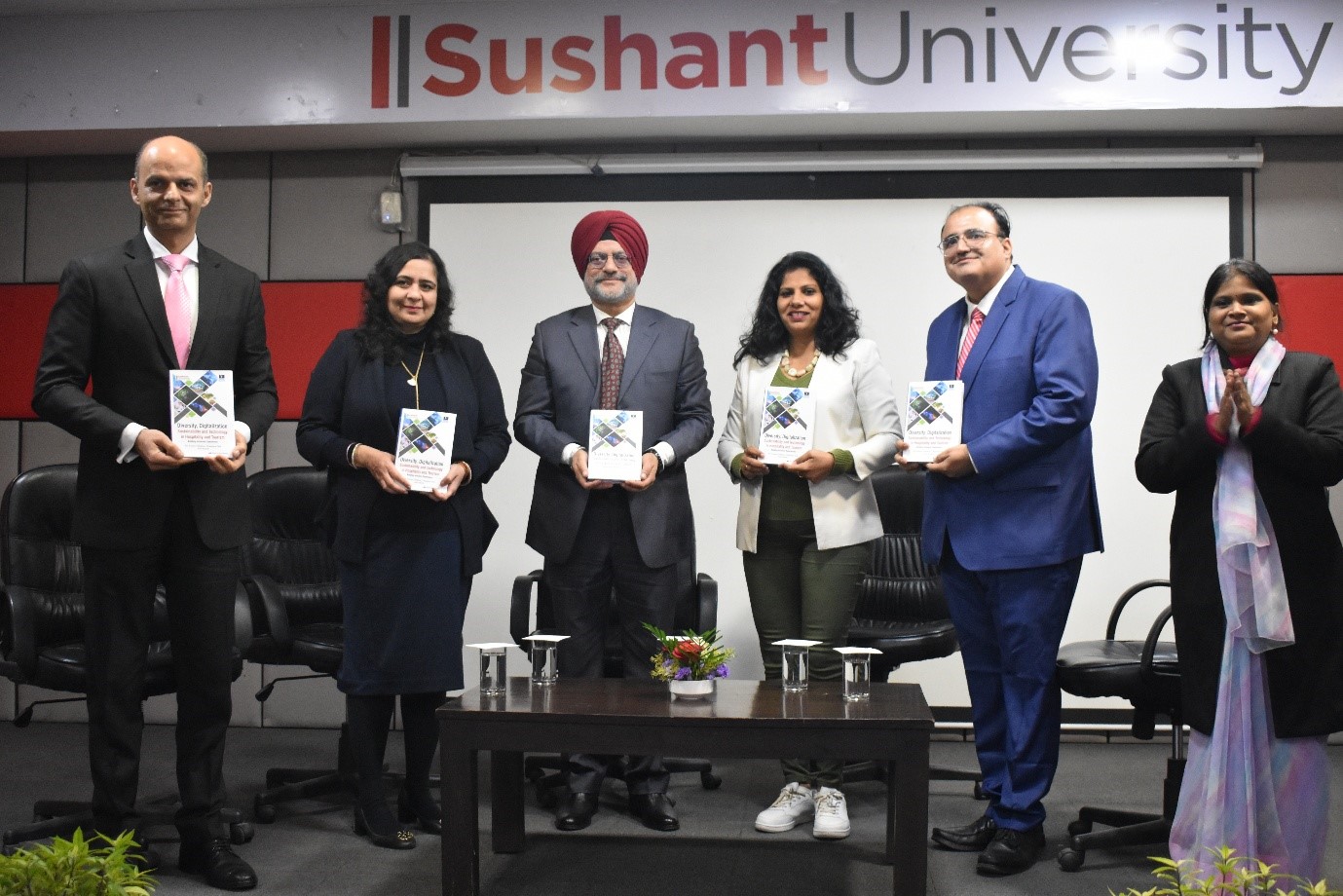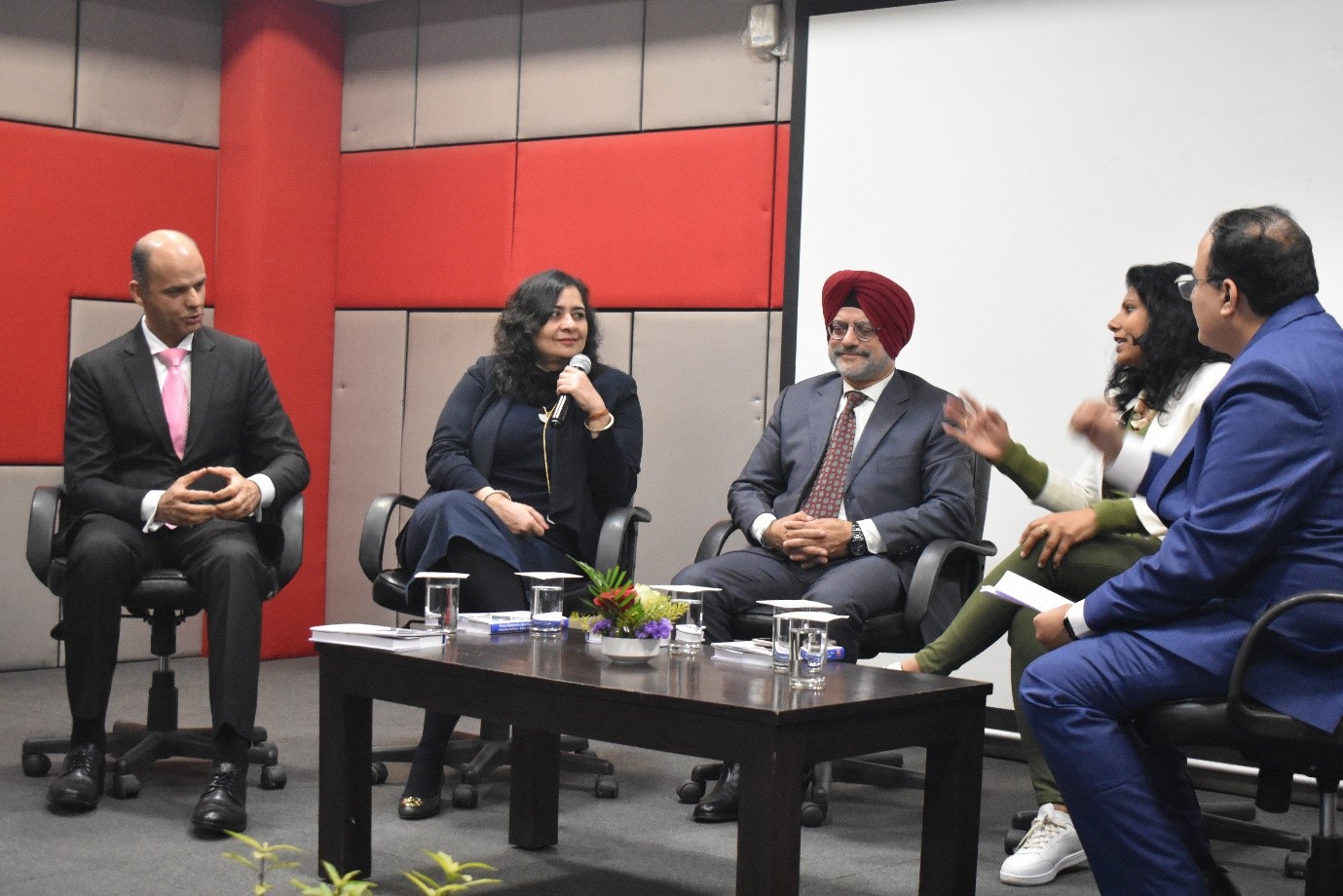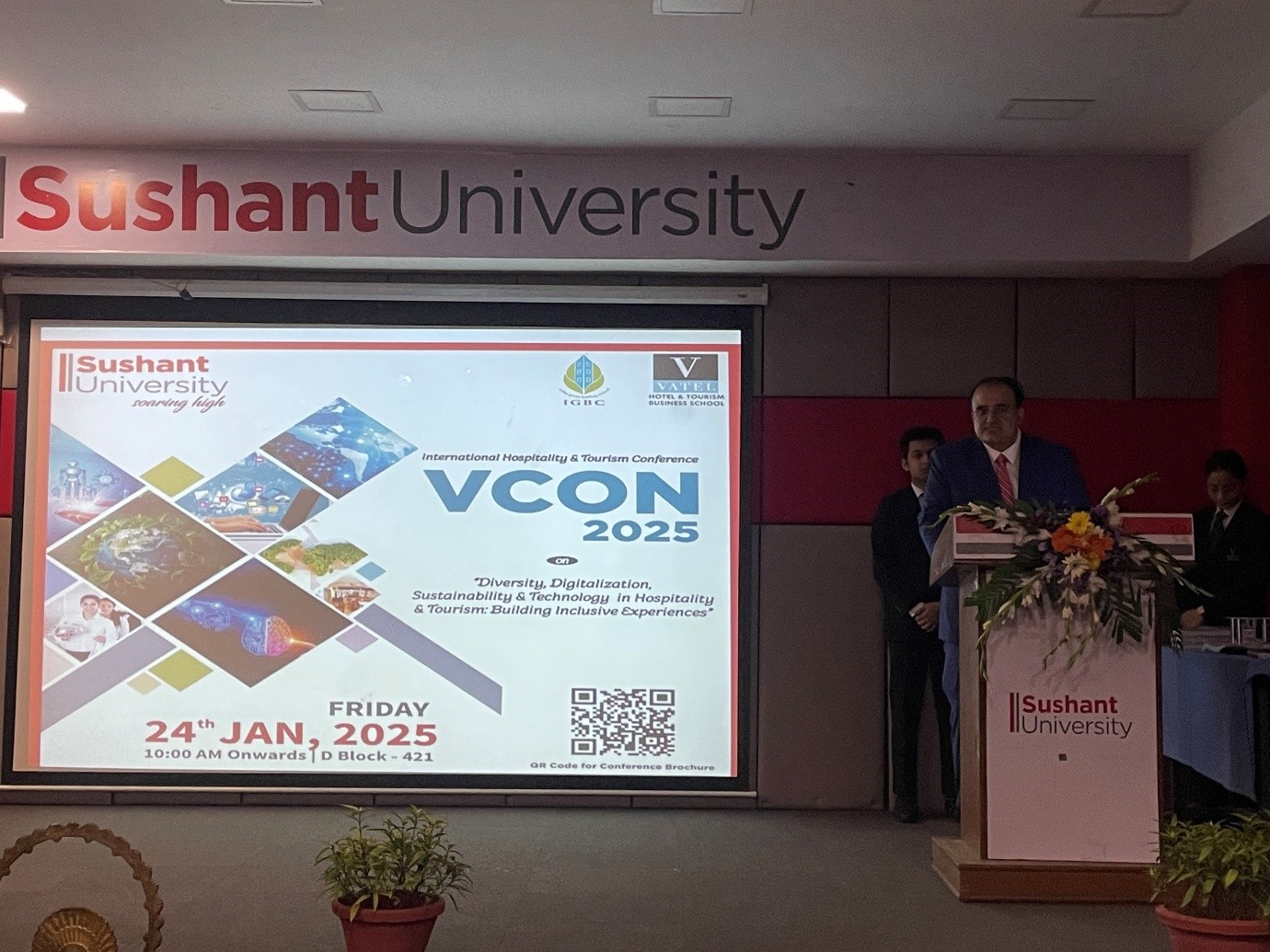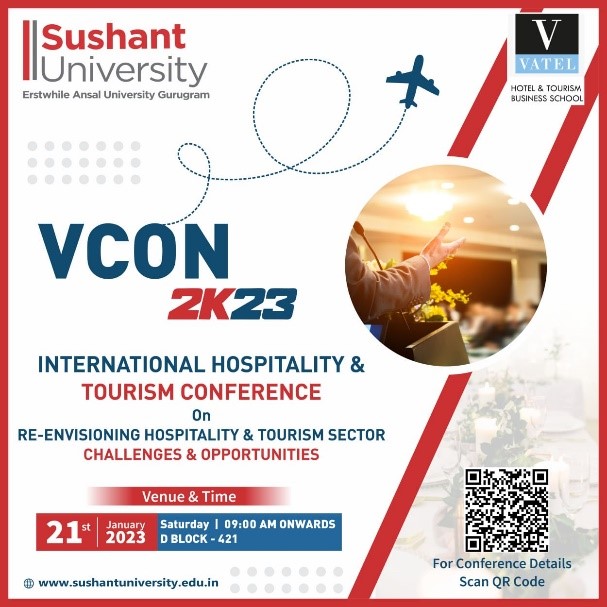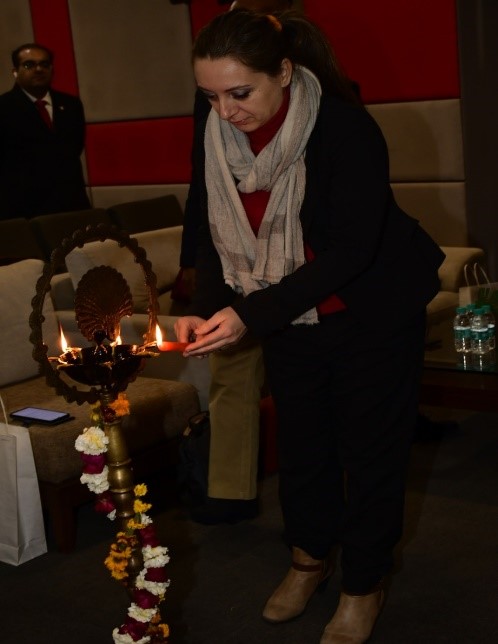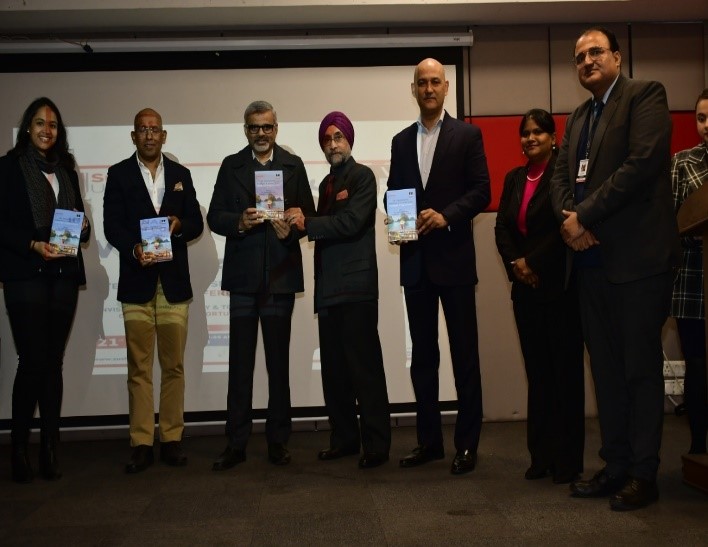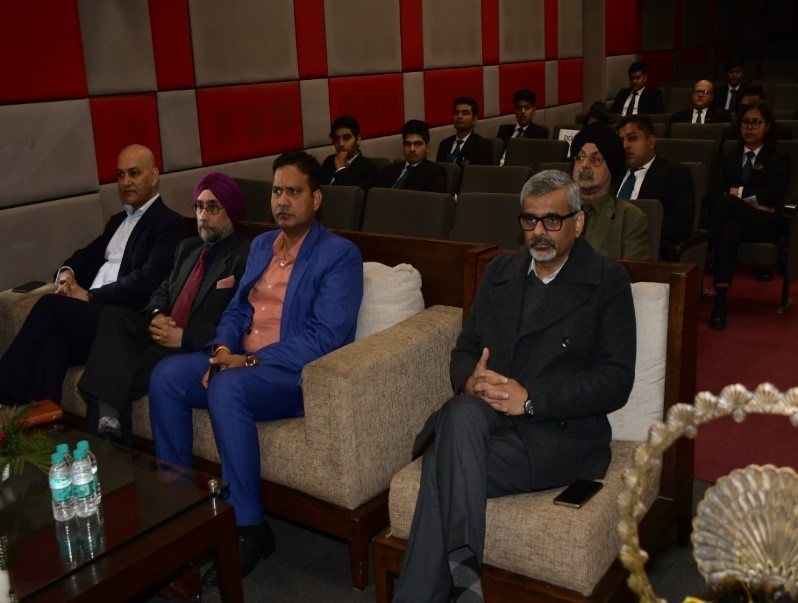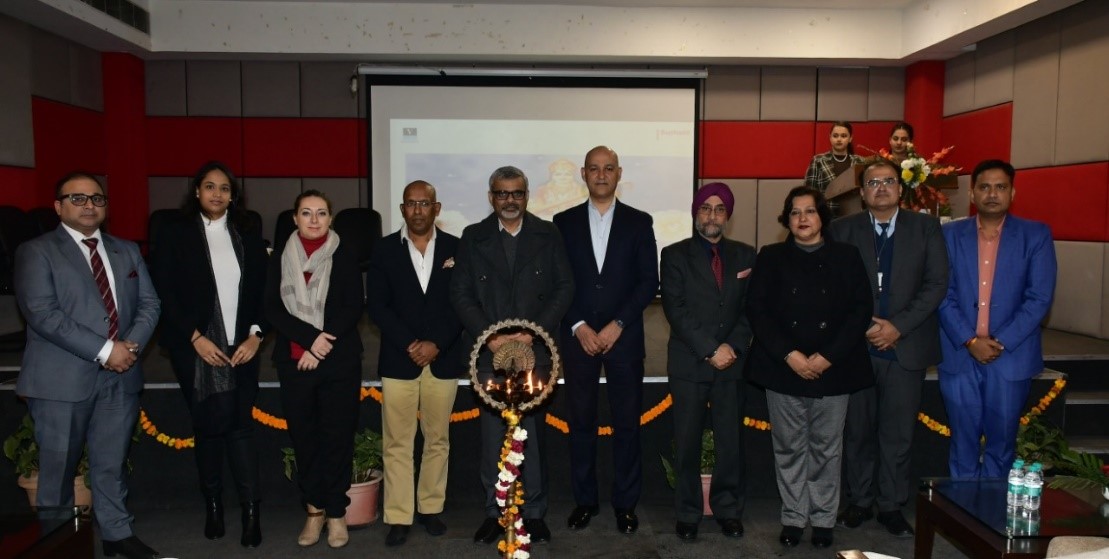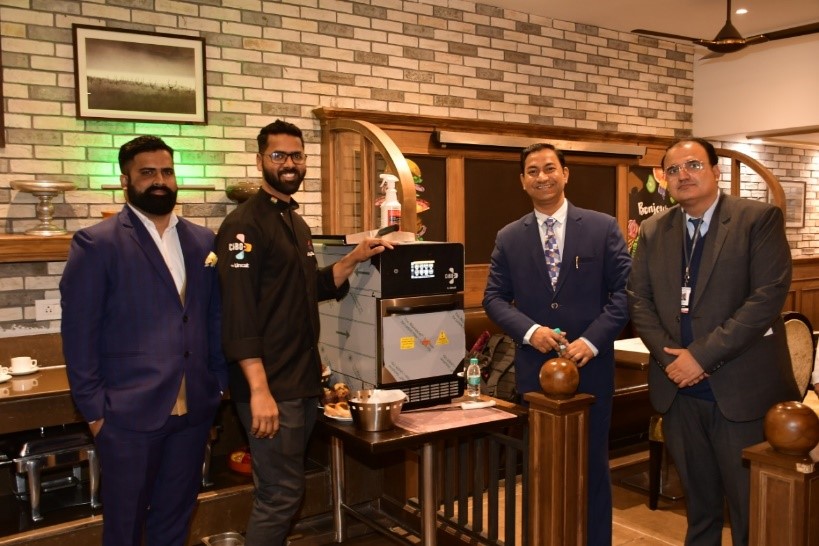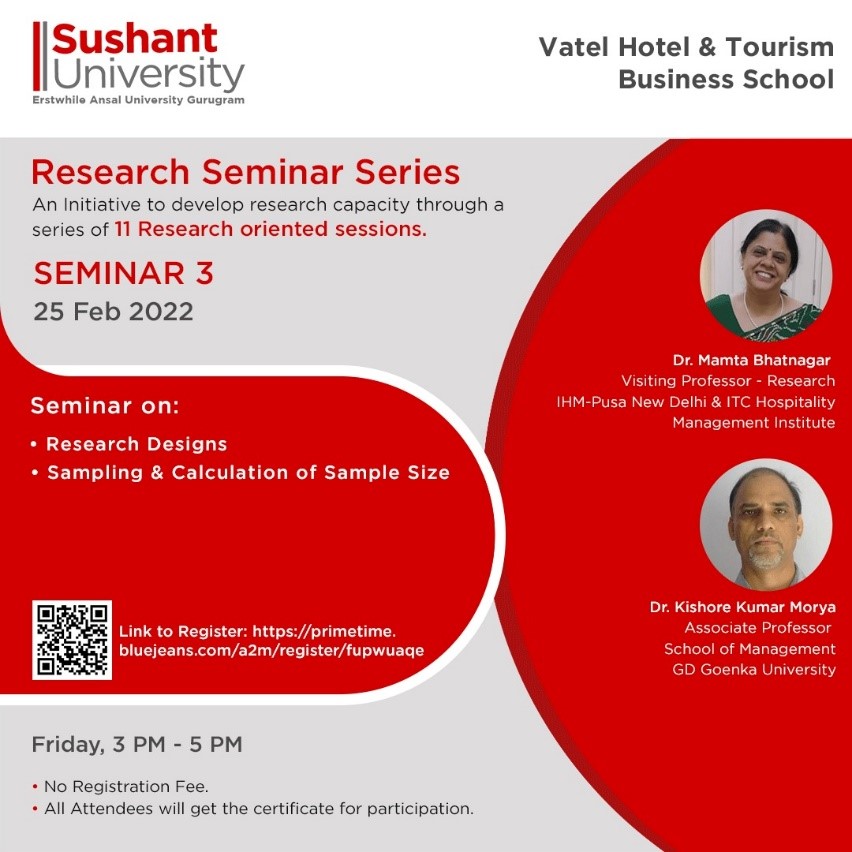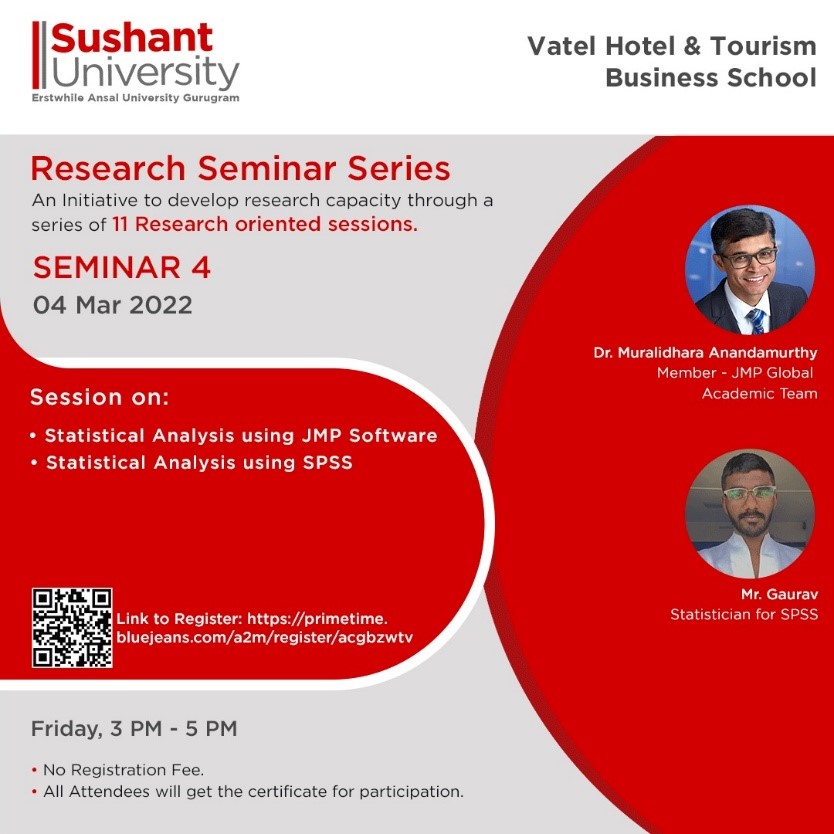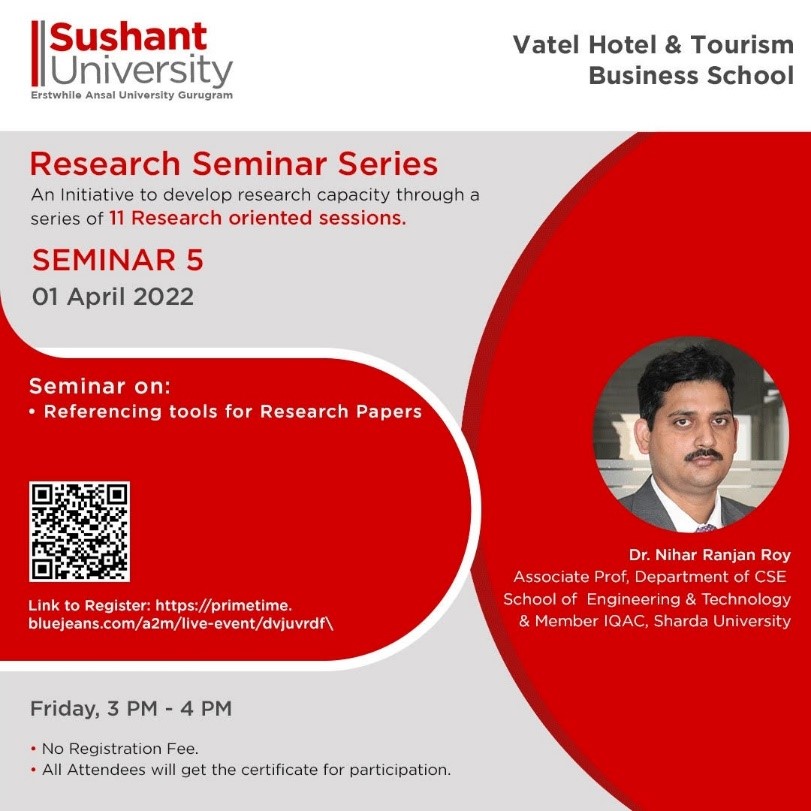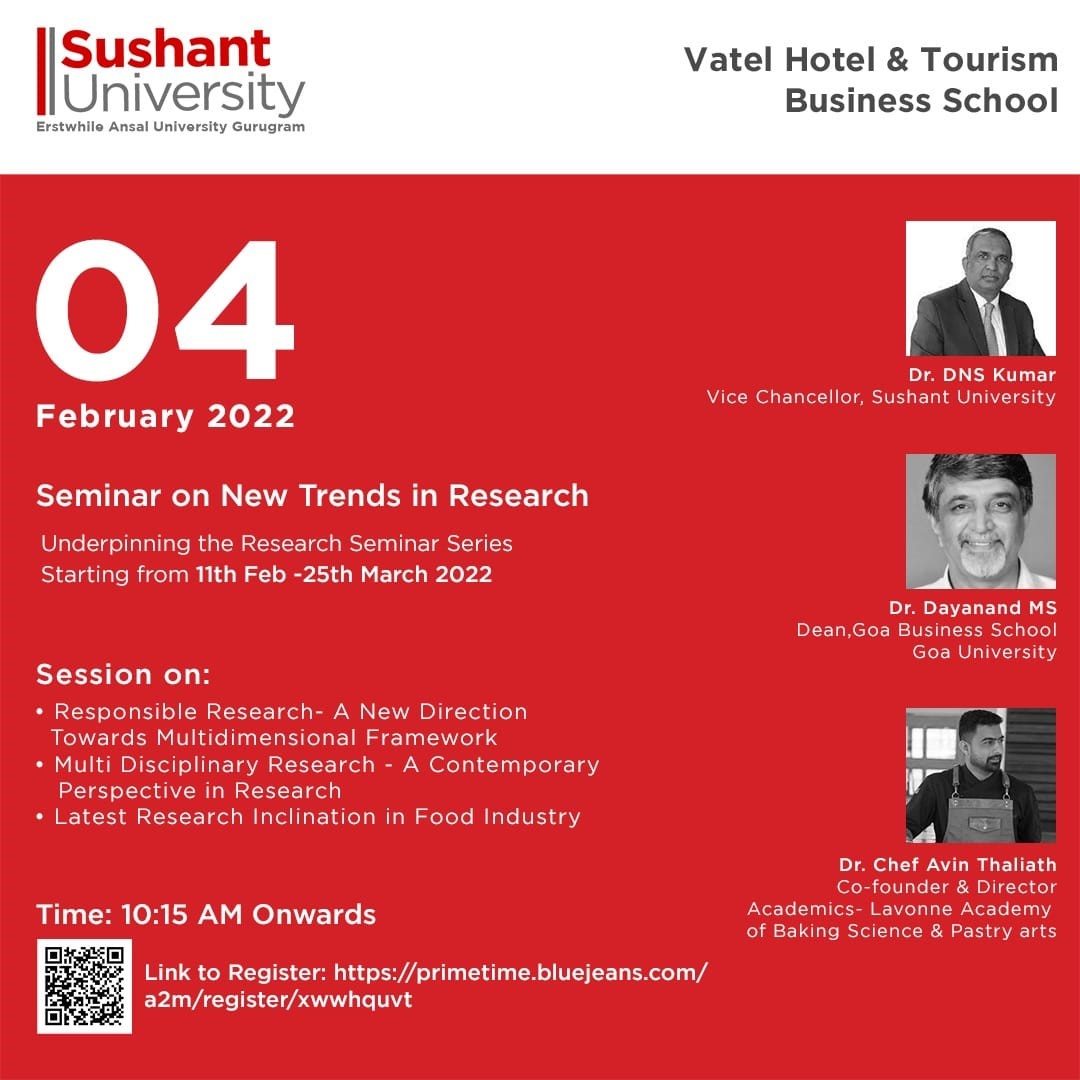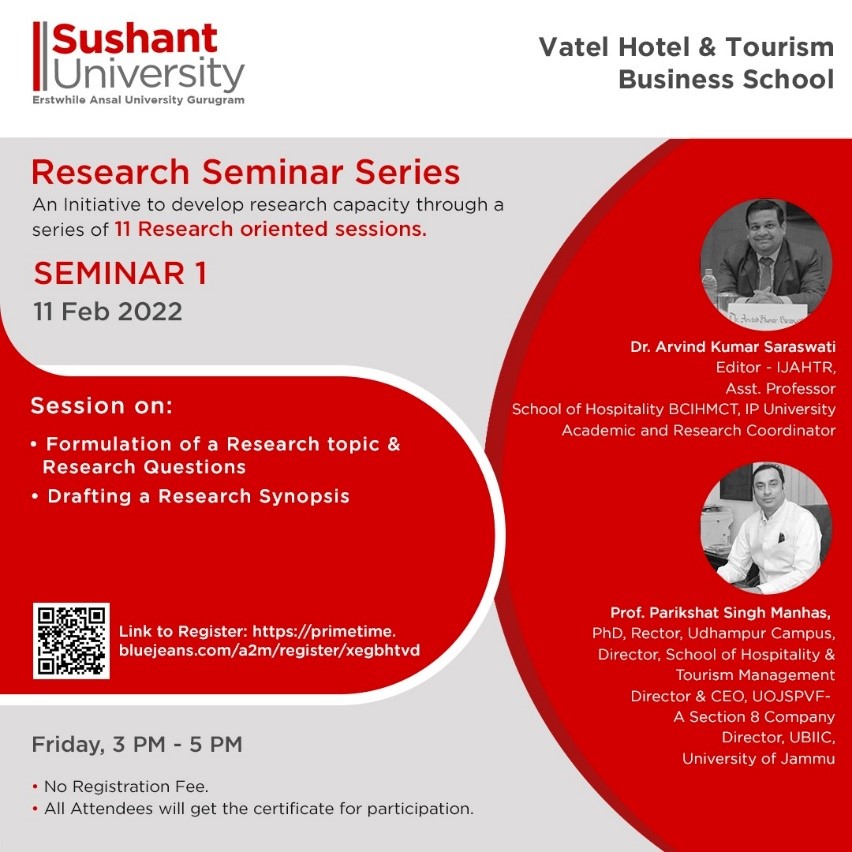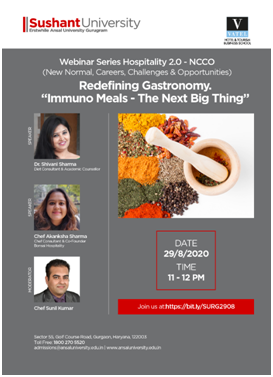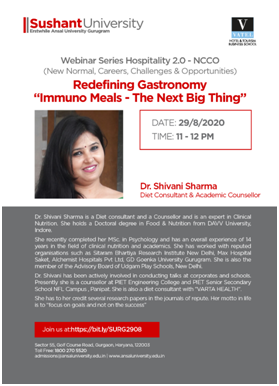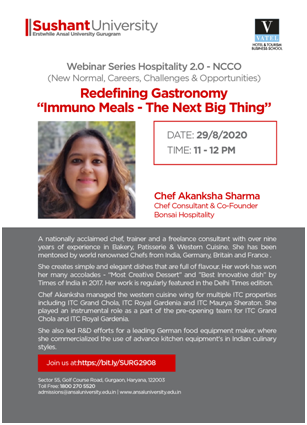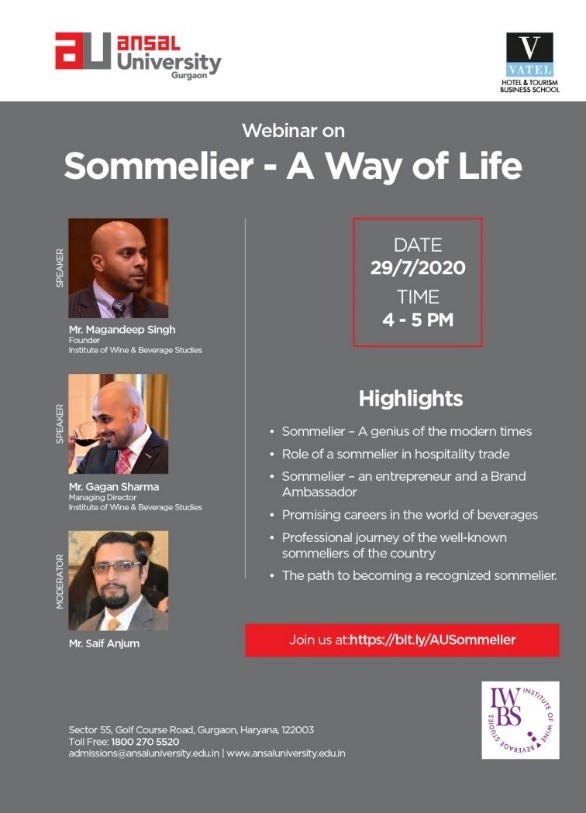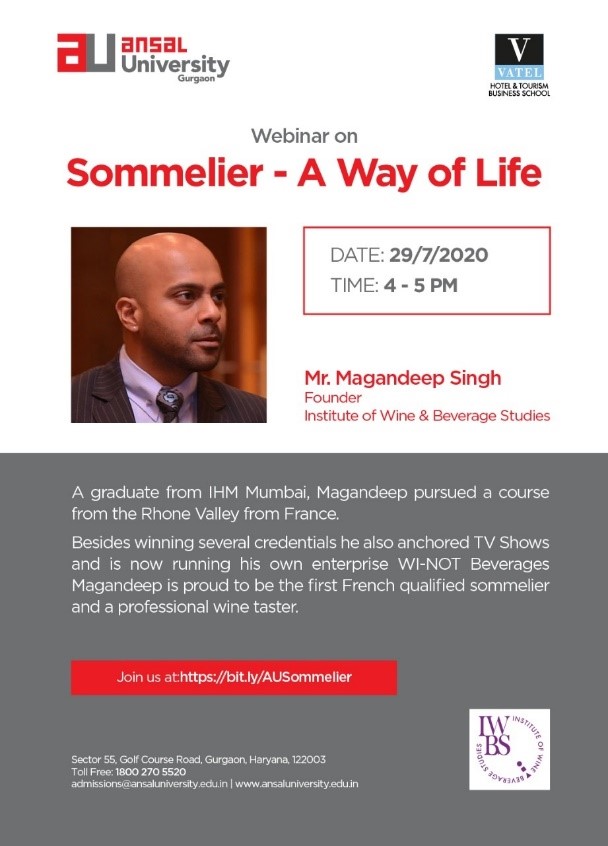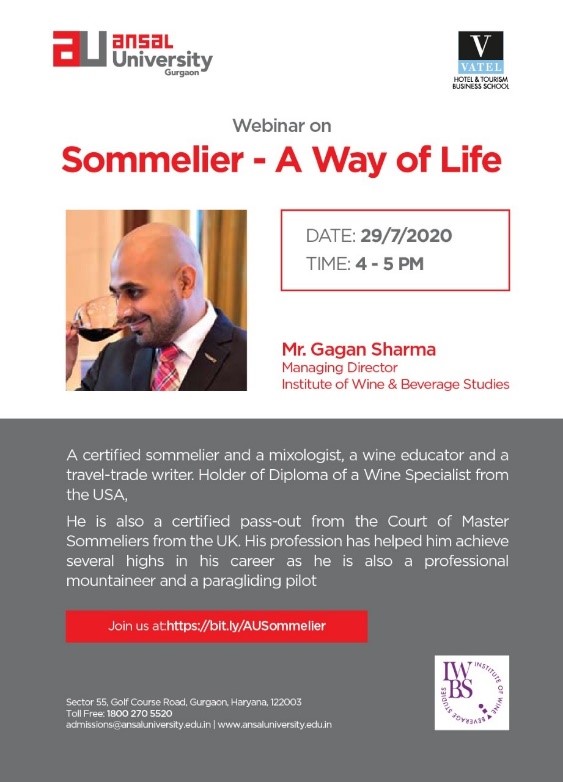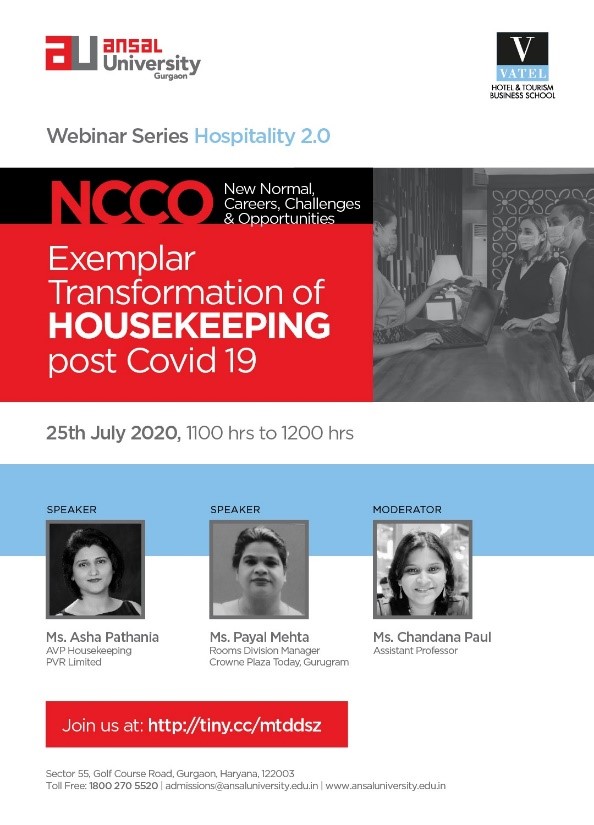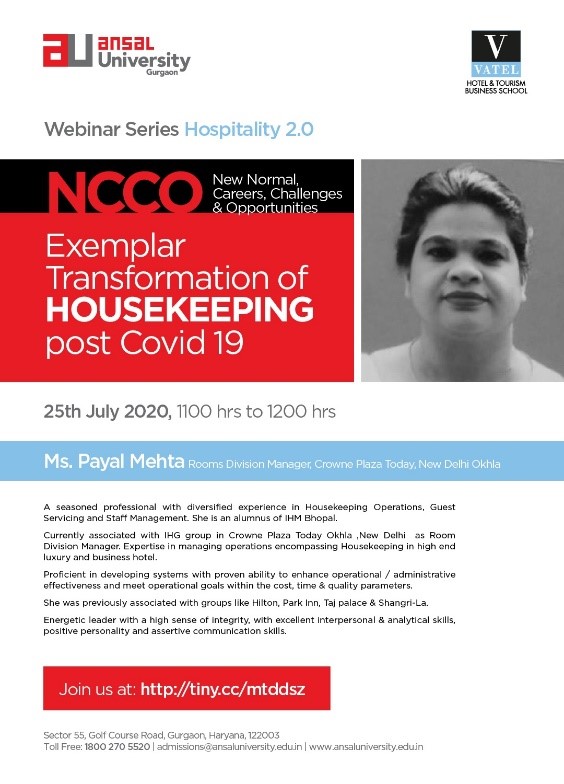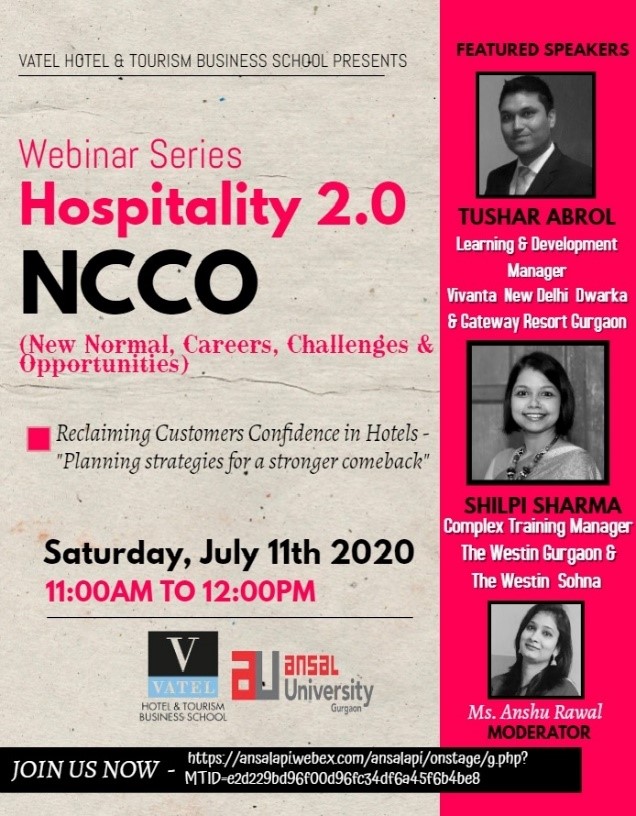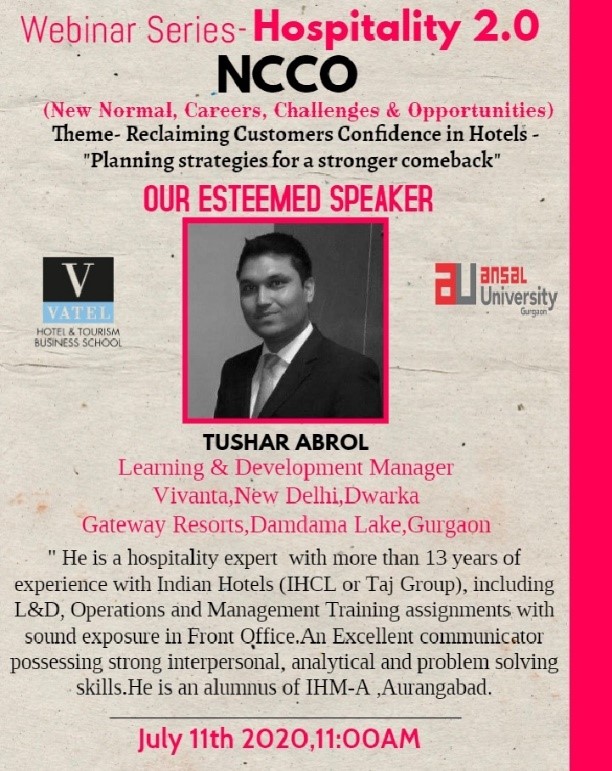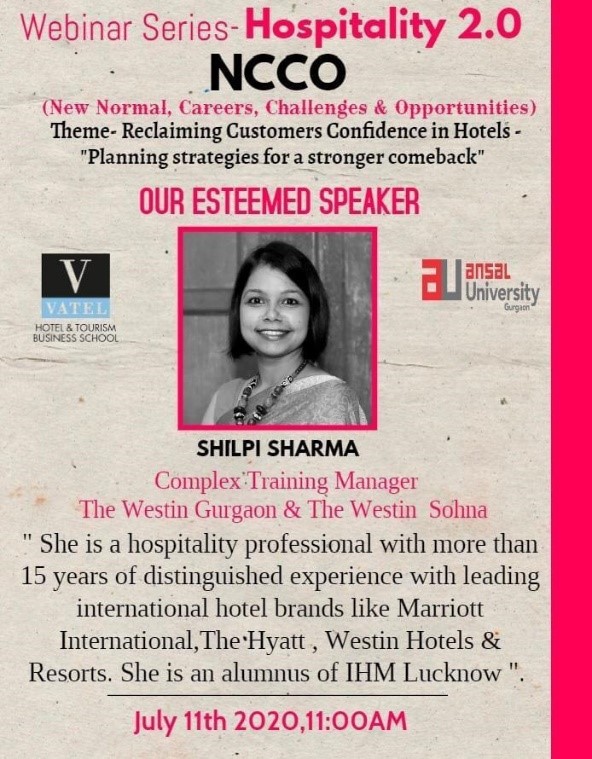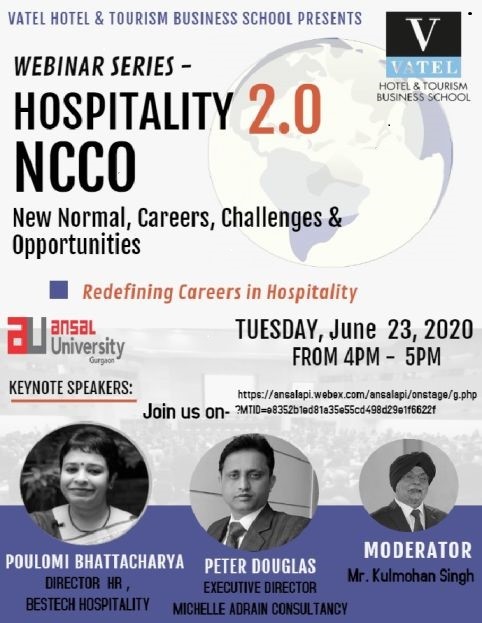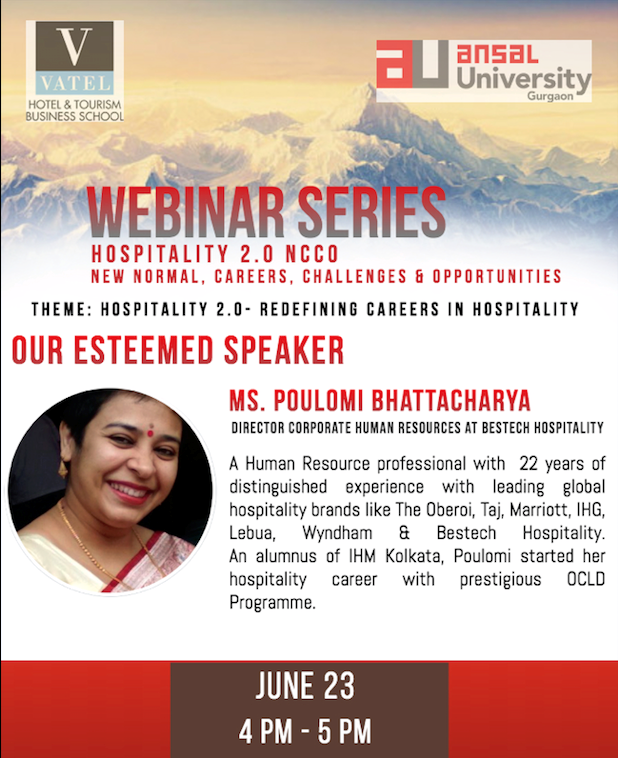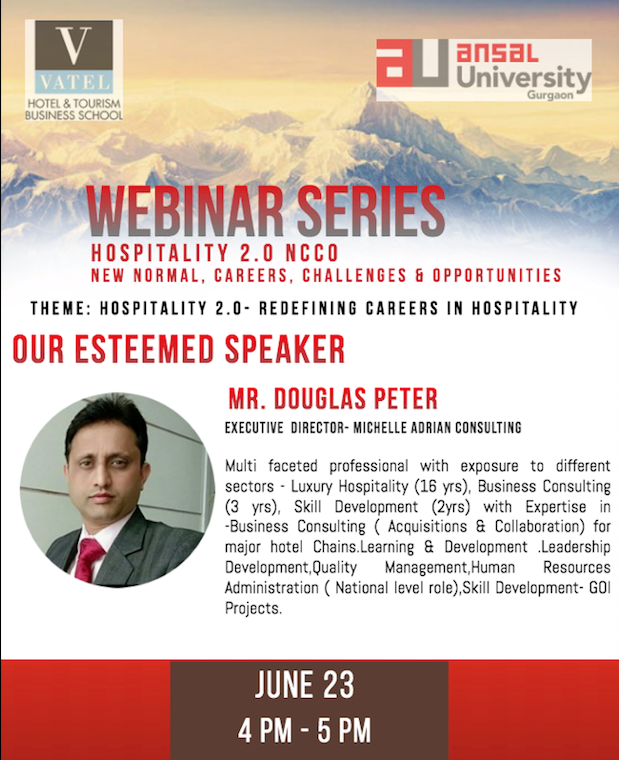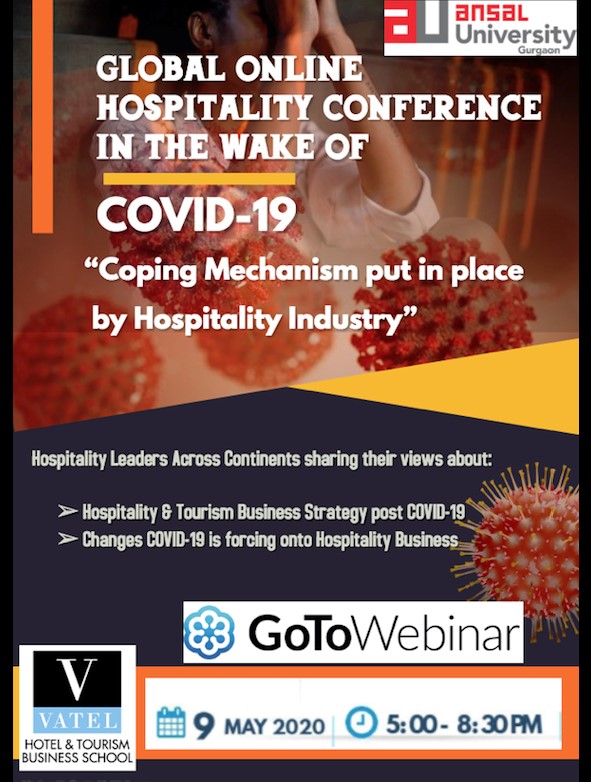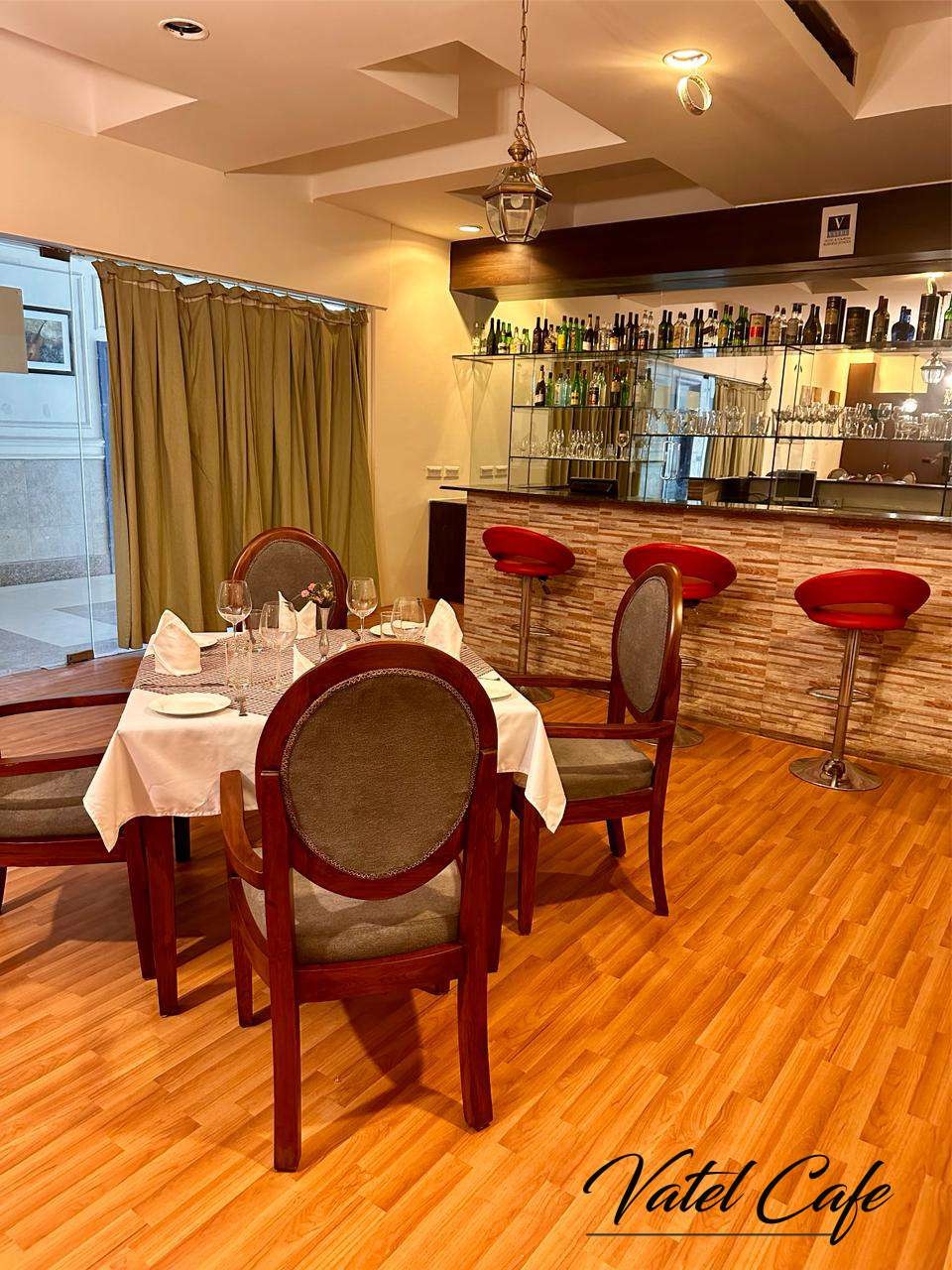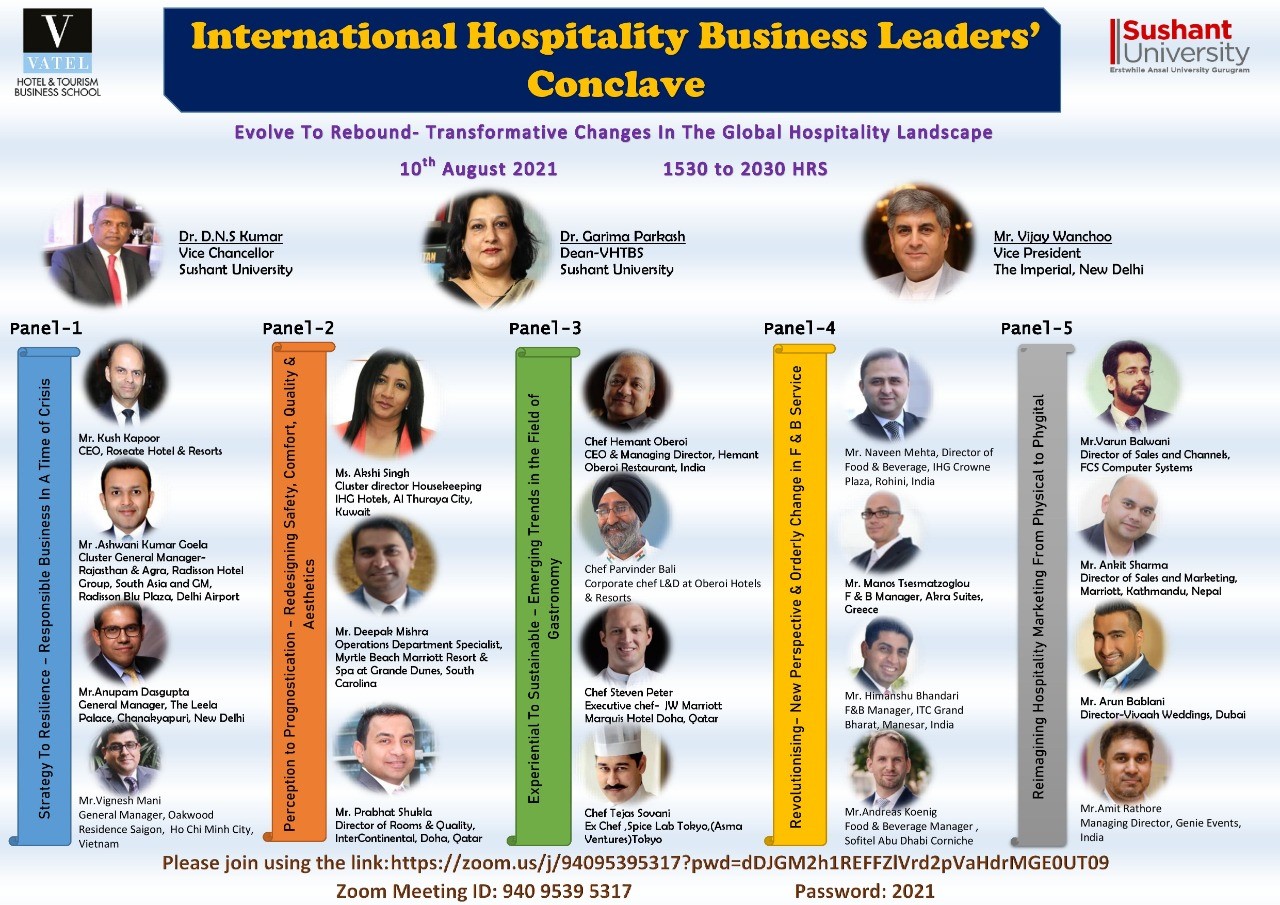
On Tuesday, August 10, 2021, the Vatel Hotel and Tourism Business School organised International Hospitality Leaders’ Conclave, in which CEO’s, General Managers and Vice Presidents of hospitality related organisations participated and deliberated primarily upon the way the systems and procedures in the various service establishments, owing to the current situation of the pandemic, have modified their ways of operations and have adopted for good a few of the changes brought in by the environment.
The general consensus: The purpose of organizing this conclave, since it had participation from people from the different parts of the world, was to understand the way in which hoteliers from the different parts of the world were coming to terms with the pandemic and the way in which they were handling it. It so came up that the measures generally employed by us here in India were almost similar to theirs and, despite the culture of people the world over being different, the customer behavior was also quite similar.
After the welcome address by Dr. Garima Parkash, Dean Vatel hotel and Tourism Business School, Mr. Laurent Guiraud spoke about the details of the Vatel Programme and gave a walk-through of the different parts of the Sushant University.
The inaugural address was delivered by Dr. D.N.S. Kumar, Vice Chancellor, Sushant University in which he welcomed the participants and expressed his happiness about the number of international speakers who had made it convenient to join the conclave from the different parts of the world.
The keynote address was delivered by Mr. Vijay Wanchoo, General Manager and Vice President, The Imperial, New Delhi in which he spoke about the deep decline in room and food and beverage business. “Business or no business, there are some costs which are fixed and need to be carried on even if the hotel is idling. You have to keep your property in a new, running condition, make sure that the air conditioning works in all public areas and that you keep a certain amount of staff on duty, especially in the kitchen, front office and housekeeping. We may have reduced the salaries but we haven’t dismissed any of our permanent staff”. He said that the hotel was getting used to new kinds of customers and had started accepting bookings for weddings for which a package for a gathering of 100 people had been designed. Bookings of film crews was another business which had come about.
This address was followed by a series of panel discussions, the theme and the brief of what all was discussed is mentioned herewith:
PANEL DISCUSSION – I - Strategy to Resilience – Responsible Business in a time of crisis – Moderated by Ms. Chandana Paul – Assistant Professor, Vatel Hotel and Tourism Business School. PANELISTS:
Mr. Kush Kapoor – CEO, Roseate hotels and Resorts
Mr. Ashwini Kumar Goela - Cluster General Manager- Rajasthan & Agra,Radisson Hotel Group, South Asia and GM, Radisson Blu Plaza, Delhi Airport
Mr. Anupam Dasgupta – General Manager, The Leela Palace, Chanakyapuri, New Delhi
Mr. Vignesh Mani - General Manager, Oakwood Residence, Ho Chi Minh City, Vietnam
Highlights: Mr. Kush Kapoor observed that their Food and Beverage business had started picking up recently but there is still a lot of improvement expected in the rooms division and recreational areas. In Vietnam though the occupancies were stable as the pandemic had not hit there in its most formidable form. The multi-skilling of staff so that one may be able to perform different roles and fill-in for the scarcity of staff was also discussed at length. The In-Room Dining was also coming up as a preference by guests as they would have the tendencies of avoiding larger gathering in the restaurants. Come what may, the situation of pandemic is there to stay and we have to learn to live with it and find our own ways to counter its effects.
PANEL DISCUSSION – II - Perception to prognostication – Redesigning safety, comfort, quality & aesthetics. Moderated by Ms. Anshu Rawal – Assistant Professor, Vatel Hotel and Tourism Business School.
PANELISTS:
Ms Akshi Singh – Cluster Director, Housekeeping, IHG Hotels, Al Thuraya City, Kuwait.
Mr. Deepak Mishra - Operations Department Specialist, Myrtle Beach Marriott Resort & Spa at Grande Dunes, South Carolina
Mr. Prabhat Shukla - Director of Rooms & Quality, Intercontinental, Doha, Qatar
Highlights: - Hotels are transforming their operations and are moving towards a plastic-free and a paper free environment and are adopting all measures to minimize the consumption of water and are thinking about ways and means of its recycle and its reuse. The room service menus being displayed on the televisions was one step towards creating an atmosphere of hygiene and confidence amongst guests.
The matter of sustainability was being given utmost priority. The room attendant performing the role of a room service steward was discussed as a matter of multi-tasking. The hotel business, generally speaking, having taken an abysmal fall, in Qatar they were talking about organizing the FIFA World Cup to recover the losses in business. There was, however no cutting of corners as the guest satisfaction and guest safety were emerging to be of a prime importance. Mr. Prabhat Shukla expressed concern about the procedure of budgeting and forecasting, which would not be the same as in the past because no clear direction or predictions could be made with regard to business. A very unique idea of bringing to the room of the guests a part of the health club was being spoken about.
PANEL DISCUSSION – III - Experiential to Sustainable – emerging trends in the field of gastronomy - Moderated by Chef Saurav Chhabra – Assistant Professor, Vatel Hotel and Tourism Business School.
PANELISTS:
Chef Hemant Oberoi – CEO and managing Director, Hemant Oberoi restaurant.
Chef Parvinder Singh Bali – Corporate Chef, Learning and Development at the Oberoi Hotels and Resorts.
Chef Steven peter – Executive Chef, JW Marriott Marquis Hotel, Doha
Chef Tejas Sovani – Executive Chef, Spice Labs, Tokyo.
Highlights: Most of the hotels and service establishments had begun to open their doors for lunches as the dinner service is still not very heavily patronized. The element of showmanship in hotels and fine-dine restaurants had gone away due to no proximity being exercised. There is more preference for local ingredients as the imports were stopped due to not much flights being operated so the size of the menus has become smaller and the prices have been moderated accordingly.
But these things do not necessarily spell the future of this industry and it was believed that normalcy will have to be restored one day. Chef Bali also spoke about the local ingredients to be used along with the local spices. The guests were showing more preferences for the Indian regional cuisines belonging to the North-Eastern States, Jharkhand and Himachal Pradesh. People were getting into pickle making and using healthy ingredients like moringa seeds, fresh turmeric, and Vegan food. Hospitality, he said, was a trade completely driven by the guests and we have to be able to come up to their expectations. These days of pandemic will go away one day and the people will come back to normal functioning – the customers, he said had ‘short memory’.
Chef Stephen spoke about the usage of livestock food in smaller quantities as creating such food meant a huge consumption of water and care. People in general had drained pockets and they must still be provided food of their preference, though as an alternate sustenance. The policy of ‘Zero-Waste’ was being observed in restaurants and herb gardens are being promoted. In another comment it was expressed that the plant-based cuisines were being promoted. “This pandemic has taught people at large a lot of cooking and, in the excitement, they have also become self-proclaimed chefs”
PANEL DISCUSSION – IV - Revolutionising– New perspective & orderly change in F & B Service Moderated by Mr. Saif Anjum – Assistant Professor, Vatel Hotel and Tourism Business School. PANELISTS:
Mr. Naveen Mehta - Director of Food & Beverage, IHG Crowne Plaza, Rohini, India
Mr. Manos Tsesmatzoglou - F & B Manager, Akra Suites, Greece
Mr. Himanshu Bhandari - F&B Manager, ITC Grand Bharat, Manesar
Mr Andreas Koenig – Food and Beverage Manager, Abu Dhabi Corniche, UAE.
Highlights: The new normal in the food and beverage service areas are multi-skilling and multi-tasking and one has to come to terms with the fact that the privilege of having the desired number of staff is turning into the essential number of staff. Their employability in different roles, given the current situation, has become absolutely imminent. For example, the bartenders can be used for strengthening guest contact and for meeting people dining in the restaurants. the usage of cloud kitchens, in view of the current situation, cannot be thought about immediately.
The customers too have in general expressed their preference for local cuisines. The roles of personnel in hotels have undergone an immense diversification. The overall business has decreased tremendously and the staff has still not been able to join back their duties. Commenting about the recently passed out students joining hotels, he said that they were quite good in communication but they did not have the required amount of ground experience. The dynamics of food and beverage service have been changed tremendously.
PANEL DISCUSSION – V - Reimagining hospitality marketing from physical to Phygital. - Moderated by Chef Sunil Arora – Programme Director, Vatel Hotel and Tourism Business School.
PANELISTS:
Mr. Varun Balwani – Director of Sales and Channels, FSC Hotel Solutions
Mr. Ankit Sharma – Director of Sales & Marketing Hotel Marriott, Kathmandu
Mr. Arun Bablani – Director, Vivaah Weddings, Dubai
Mr. Amit Rathore – MD, Genie Events, India.
Highlights – owing to the circumstances, the term PHYGITAL has been coined, depicting the way of operation which is partly physical and partly digital. This is therefore a hybrid system of functioning. Just like hotels, the allied industry of entertainment, events and catering also have had their share of setbacks and disappointments from the current situation. Adaptation to the latest digital technology has though brought in a lot of disruption but has been both welcome and otherwise. The operators are gradually getting used to the technology and are changing their style of working in order to keep pace with the new way of functioning. The direct dealing with the customers having come down to a total nil, the functions of sales and marketing have come closer as complimenting each other’s domains. The panelists were of the opinion that the current situation has taught us a lot but the ways of operations have been more or less adopted and are expected to stay for some more time. The Conclave ended with Mr. Kulmohan Singh delivering the Vote of Thanks for their participation.
